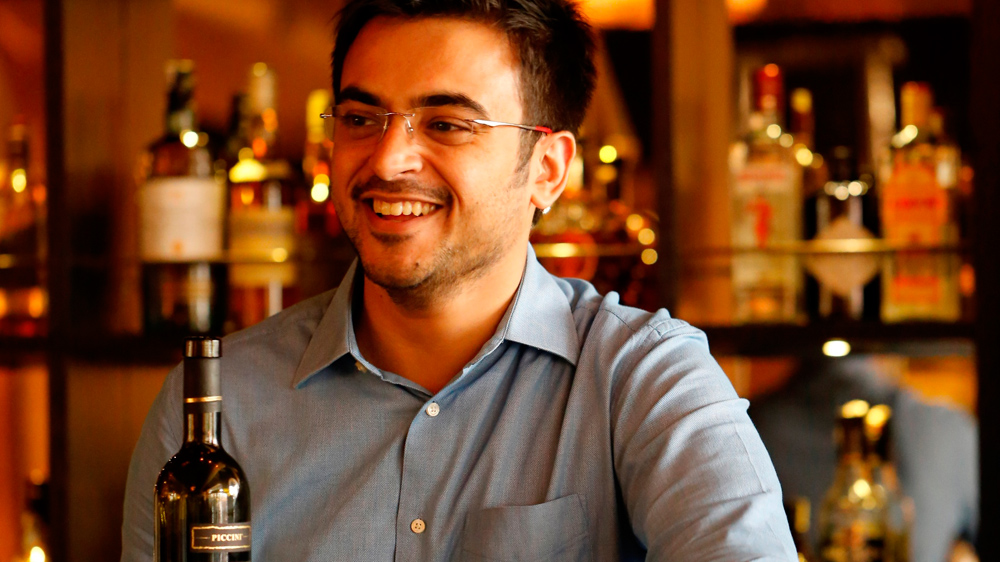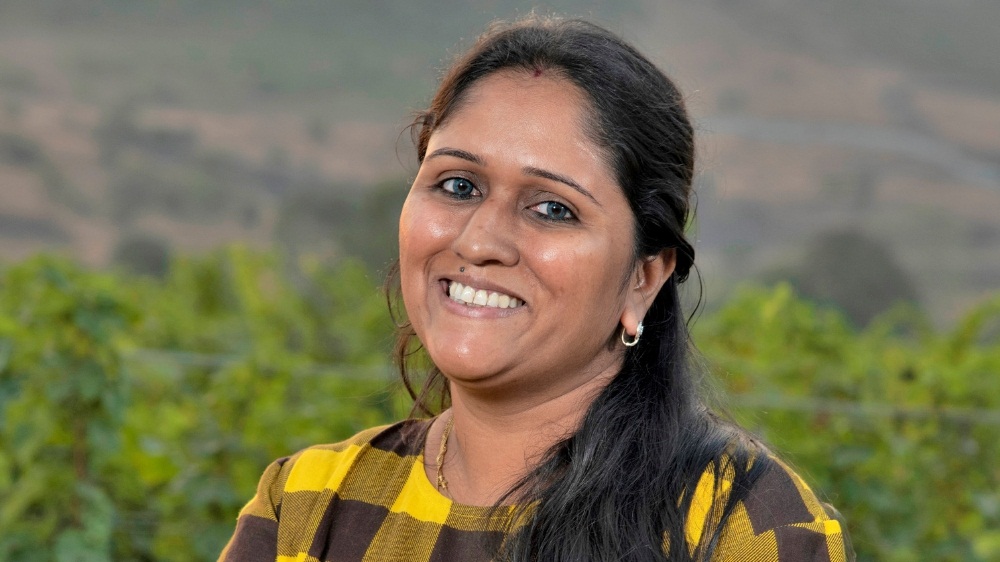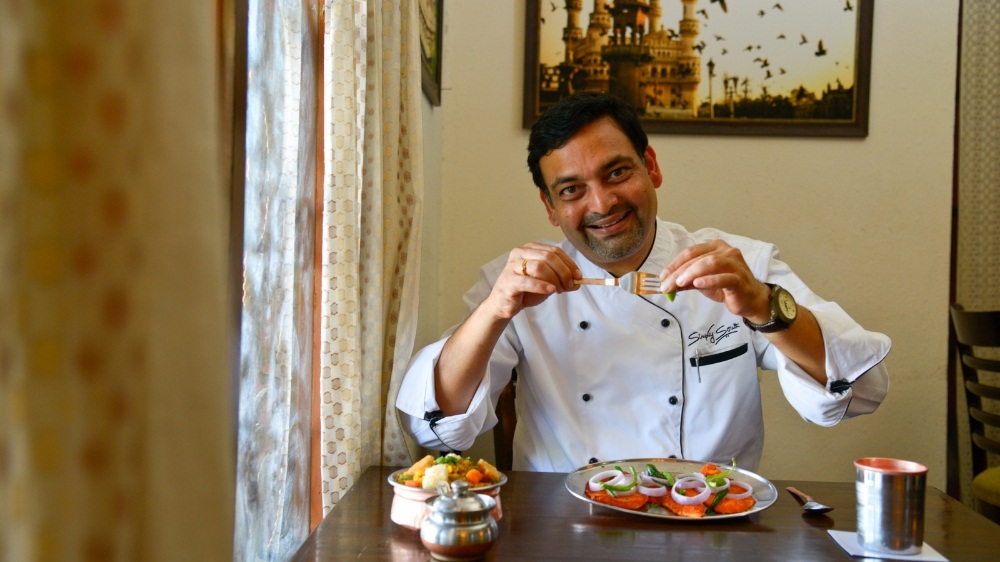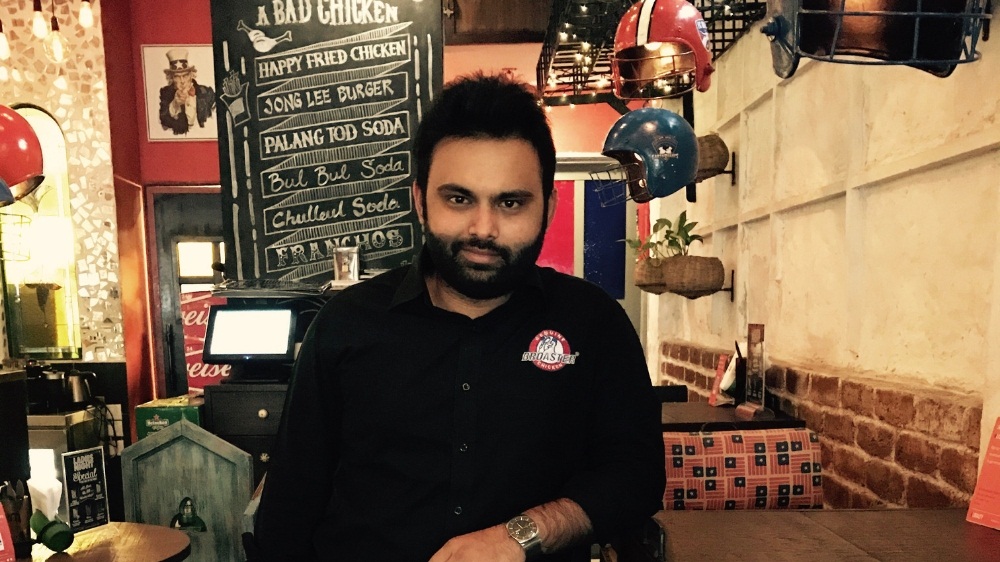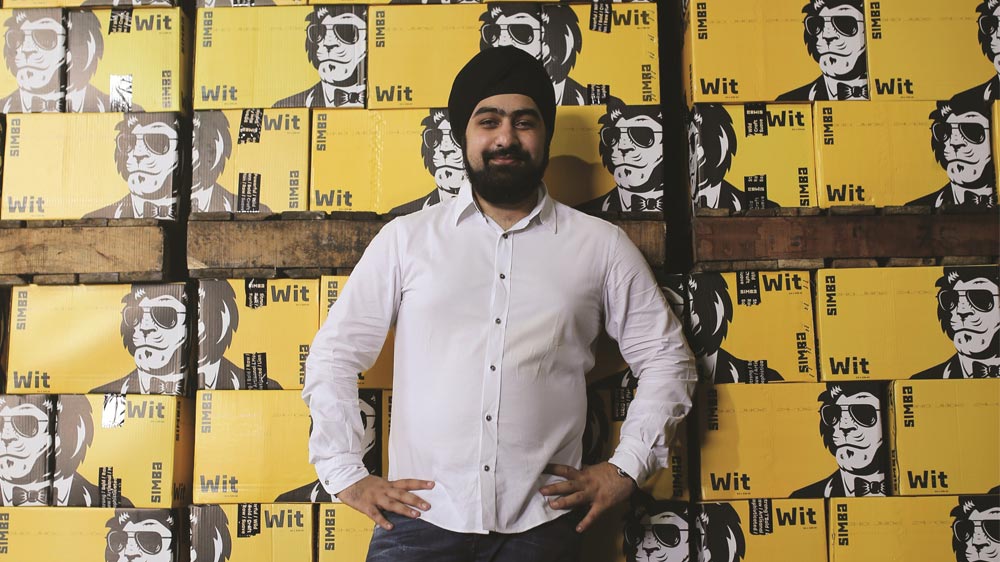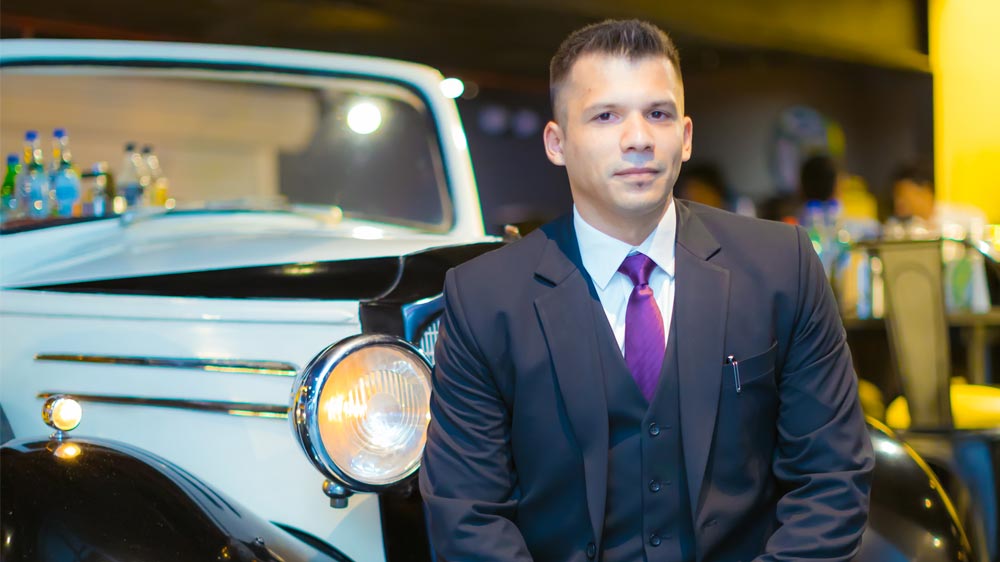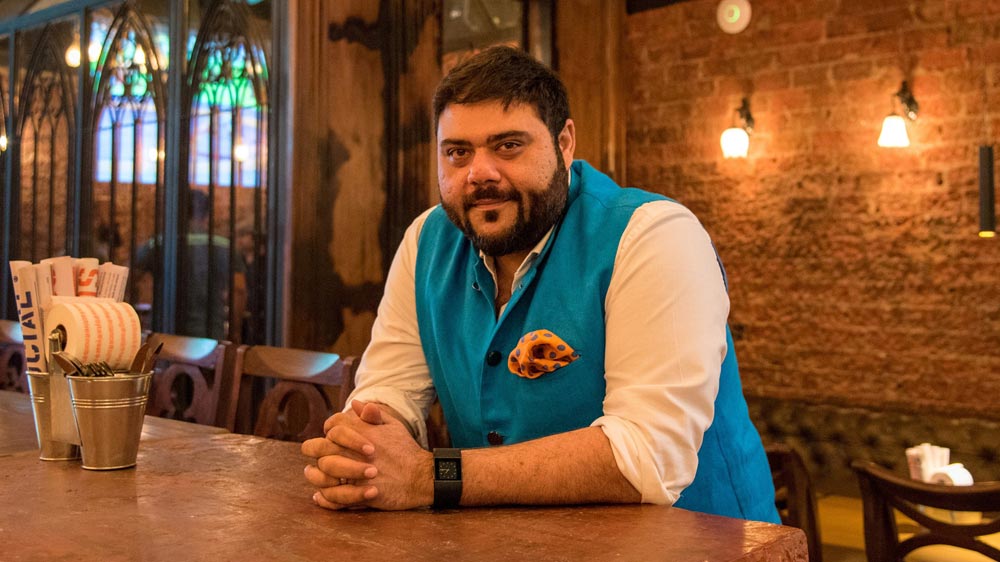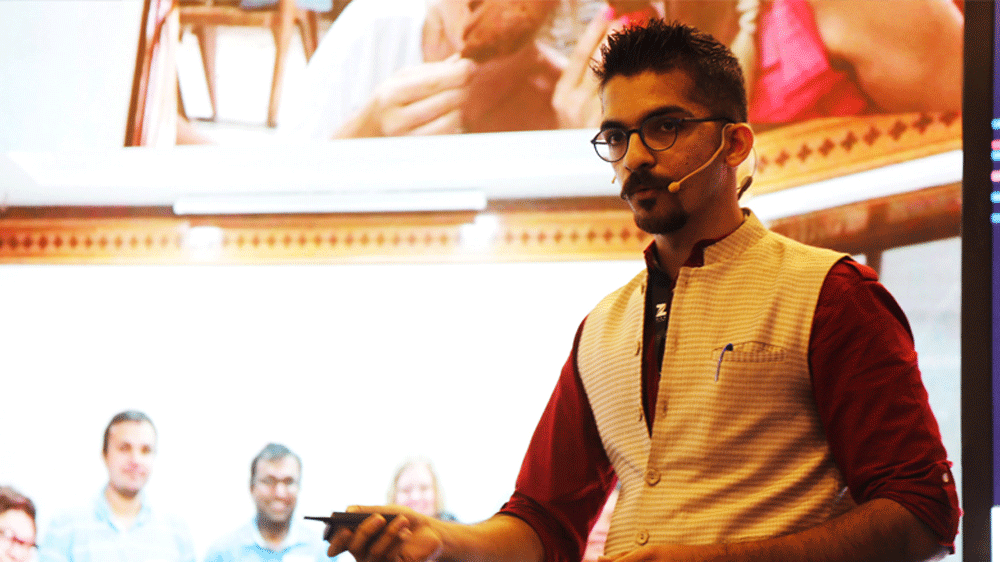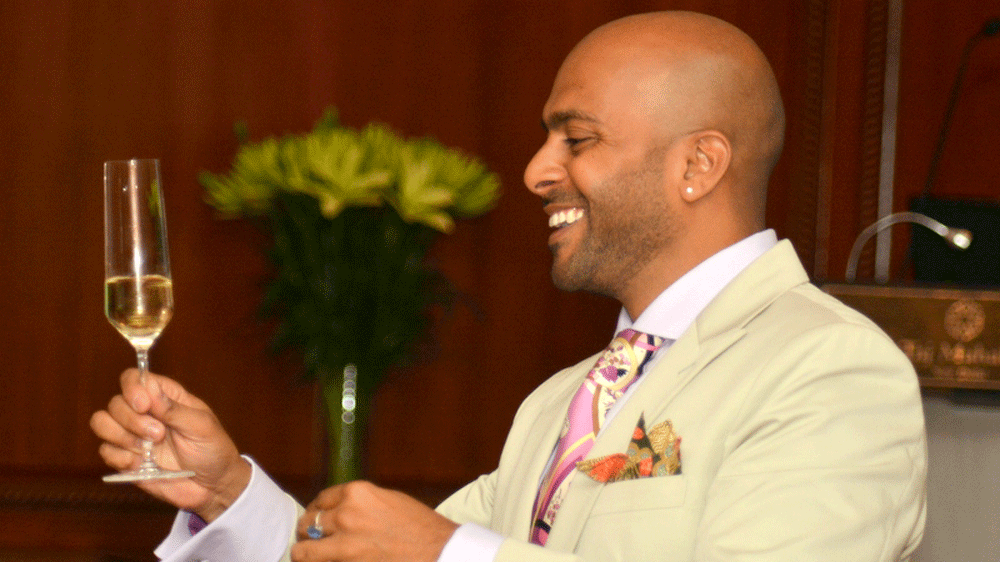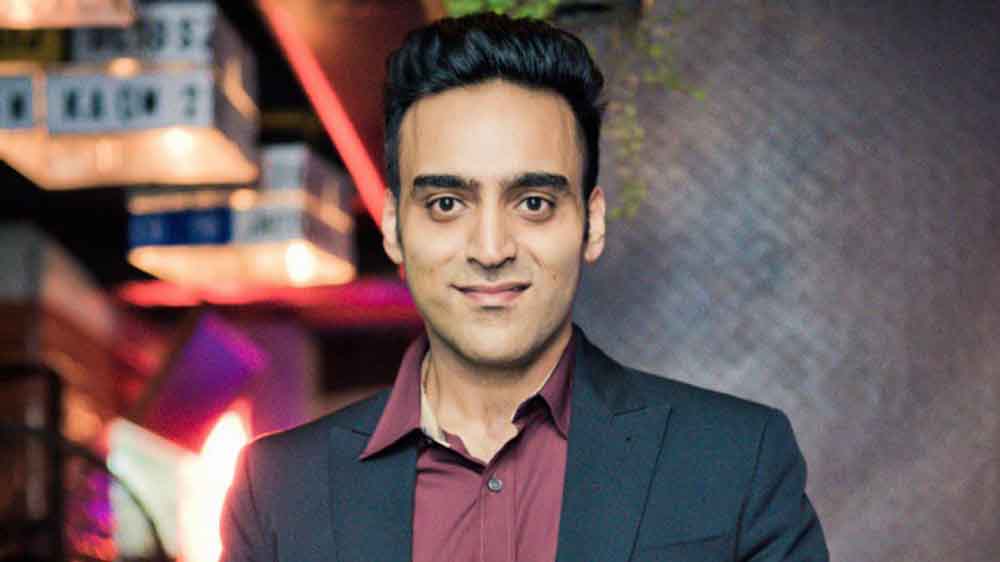
How did food happen to you?
Born in Mumbai, in a family of gourmands/foodies, I was exposed to the thrills of great food from early childhood. From the aroma of spices in the kitchen to the acumen required to run a successful business, I soaked it all in my growing years. It, therefore, came as no surprise to anyone when, at the age of 18 years, I decided to pursue a career in the business of culinary arts. Working my way through everything – from researching people’s dining preferences and branding, to gaps in the market and international trends, I knew that I had found my calling in hospitality. I have worked with some of India’s most prestigious bars, restobars and nightclubs, creating brand after brand that would slowly usher in the new age of India’s dining outexperience.
Tell us something about Bayroute and Hitchki.
Both our brands – Hitchki and Bayroute are absolutely different from each other. The offerings at both the places are different with varied set of audience and there is something for everyone under one roof. Bayroute is a fine dining restaurant known for its impeccable middle eastern culinary, brings the world’s most exotic, sophisticated, and delicious cuisines. Bayroute’s menu aims purely at middle eastern cuisines and the essence & vibrancy of the food will make you feel like you are enjoying it in the bustling streets of Egypt, Turkey, Lebanon, Morocco, and Greece. Whereas, Hitchki as a brand is built on the thought of nostalgia evoked by Food & Music. Hitchki (the Hindi word for “Hiccup”) cleverly evokes memories of time gone by, in a contemporary chic setting. Hitchki serves never seen before drinks each with its own unique spin. The economically priced menu incorporates regional & traditional flavors from across India & offers classic favourites with modern twists. Each dish has a quirky, modern touch in a manner that suits the palate of the current trends.
How are these brands creating a new meaning for Mumbai’s nightlife scene?
Bayroute Powai has recently introduced the most elegant Friday plan with “GINITOES’ FRIDAY”– a night of great food and the most soothing jazz. GINITOES’ Friday will transport you to another world as you walk through their doors, and into a world of beautiful jazz and delectable Middle-Eastern food and drinks. Patrons can choose to have either 3 delectable cocktails plus 2 Bidayah/Hot Mezze or pick their favourite food, a-la-carte, off Bayroute’s unmatched menu. GINITOES’ FRIDAY is just the antidote you need to a long week!
Hitchki seamlessly transforms itself from day to night, defined by international skill & service, it is sure to make you travel back in time to the ‘days of joy.’For Bollywood lovers, Hitchki organizes the special Bollywood Night every Friday to lit up the weekend vibes. Also, Hitchki organizes “Ladies Night” every once a month for the women, offering Unlimited IMFL cocktails for women from 8pm to 10 pm.
You have worked with multiple brands. How do you tap the Millennials preference and dining trend according to your restaurants?
We have defined the word ‘Experience’ as uniqueness of five attributes – Food, Drink, Music, Service and Ambience and we assure that we never let any of these attributes go below our defined standards. We always keep updated with new trends keeping the millennial generation in mind. Hitchki, is one of the hippest resto-bars in Mumbai, has fast grown to become the home to the grooviest weekend parties. At Bayroute, patrons get to enjoy the exotic middle eastern food at the most affordable price, which is why it draws many food lovers to this restaurant.
We see that there is a sudden trend of Middle Eastern restaurants with people going deep into regional cuisines. What is unique about Bayroute?
Bayroute is a tribute to the Middle East’s impeccable culinary legacy. The restaurant adopts the classic bread- fermentation process and cooking techniques such as flat stone atop burning ember, spinning rotisserie and open fire roasted skewers that were discovered in the middle eastern lands.The seasoned chefs whip up the most exotic dishes, prepared with generations-old family secrets from the deepest corners of Lebanon, Morocco, Turkey, Egypt and Greece. Bayroute’s charming old-world exteriors blend beautifully with its modern, minimalistic interiors. It further incorporates their most frequently used and savour-able ingredients such as chickpeas, olives, za’atar, saffron, sumac and dates to create a range of mouth-watering delicacies. With a plethora of delicacies patrons get to savour a few hidden gems like chicken falafel, Baba Ganoush, Muhammara, Za’atar Chicken, Baklava and Gold Souk which are among the popular menus at Bayroute.
Also, how do you balance as both of your brands cater to two different genres?
Both our brands – Hitchki and Bayroute are absolutely different from each other. The offerings at both the places are different with varied set of audience and there is something for everyone under one roof. Hitchki is a fun and quirky place which aptly reflects its Hindi meaning ‘hiccup’ cleverly evoking memories of a time gone by, in a contemporary chic setting.The internationally aspirational brand focuses on regional cuisine and elements of nostalgia to the dining experience, the food and the bar offerings.
Bayroute on the other hand is a fine-dine restaurant with a never seen before concept. The Middle Eastern delicacies at Bayroute have connected the enchanting streets of Egypt, Morocco, Lebanon, Turkey and Greece to the coast of Mumbai, holding the most invigorating cuisines. The culinary map of Bayroute is an expedition to rich cuisines around the globe which will transform the city’s food segment forever. Classic exterior and elegant modern interiors reflect the rich vibrancy and culture of the region.
Tell us something about your expansion plan. It is in the news that Hitchki is opening doors to people of Dubai?
Yes, Hitchki has finally opened its door in Dubai on March 15 at the tony Grand Millennium Hotel, Al Barsha. Dubai is the cultural melting pot of the world. Nostalgia, love and great food know no boundaries, which is why we knew that we had to come soon to Dubai. It shares Mumbai’s pace, multi-culturalism and passion for cuisine. Owing to its strong Bollywood influence, it will offer a new spin on many childhood favourites, offering regional and traditional flavours from across India. It’s casual and energetic ambience along with its nostalgic food and drink elements make it the perfect place for Dubai and a signature will be the Bollywood Nights, since Bollywood has been a major hit in Dubai. It’s a very chic Indian concept for the global audience, adapted to the Middle Eastern palette.
Tell us something about footfall. Who are the general customers?
Consumers are always looking for a place where they are welcomed and can come back to. We aim to provide services that cater to the masses and create a brand recall value that our consumers can connect with. Both our brands – Hitchki and Bayroute are absolutely different from each other. At Hitchki and Bayroute, patrons can enjoy medley of alternative cuisines from around the world, including bountiful options for vegetarians too. Those with a sweet tooth will have enough to choose from. Both the restaurants also serve an Instagram-worthy beverage menu so it definitely caters to the Millennials. Anybody who is into fine dining, love exotic middle eastern cuisine and prefers jazz music and soothing ambience, will definitely like to go for Bayroute. Whereas, food lovers who enjoys going out with friends, socialising and has a great taste in Bollywood music would love to visit Hitchki.
If not a restaurateur, What can we expect from you?
I have always liked being on this side as Restaurateurs, however, I am also a professionally trained voice over artist. That’s what I love to do when I am not busy in the restaurant.

‘Love & Cheesecake’ or Poetry by Love & Cheesecake is founded by Ruchyeta Bhatia and Chef Amit Sharma in November 2012, with a major focus on introducing diverse cheesecake options to India, which then expanded to include the other desserts and the casual dining concept ‘Poetry.’ Growing organically without external funding, Love & Cheesecake now operates 23 company-owned outlets supplied by their central kitchen, emphasizing fresh, high-quality ingredients and unique product offerings like savory cheesecakes.
In 2016, Love & Cheesecake morphed their love into ‘Poetry’, a full-service restaurant, with its first outlet in Mumbai’s bustling suburb of Bandra. Poetry has now increased its footprints to 6 destinations across Mumbai. In an exclusive interview with Restaurant India, she shares about the brand identity, growth, expansion and much more.
How they started?
What started as a 200 sq. ft. experimental kitchen in 2012 has today grown as one of the Mumbai’s top premium Food & Beverage destination in two unique formats.
Ruchyeta met her business partner Chef Amit in Australia. Together, they decided to start the business. “The idea was to introduce a new dessert product line to India, as cheesecake options were limited at the time. So, we decided to venture in this segment which is unexplored by many.”

The Idea Behind the Brand Name
The brand name draws inspiration from the timeless essence of love. Bhatia emphasized their focus on consistency, quality—driven by a long-standing chef team—and a customer-first approach, with signature offerings and efficient delivery.
Love & Cheesecake operates 8 dessert-only cafés and is known for crafting edible dessert art, offering over 56 natural flavors of cheesecakes, cakes, and confections. It stands out as Mumbai’s only dessert café using pure Italian dessert cheese instead of processed whipped cream.
Bhatia shared, “When we launched Poetry in 2016, the vision was to create Mumbai’s most exquisite breakfast experience—featuring everything from specialty brews and cold-pressed juices to hearty salads, comforting mains, and indulgent desserts—all fresh, natural, and delicious.”
Growth over the years
Powered by the vision of founders Ruchyeta and Chef Amit, Love & Cheesecake is today a team of over 300 full-time adoring employees, has a dedicated call-center for seamless customer support and its own 8,000 sq. ft. central-kitchen from where it controls 100% of its production for both, Love & Cheesecake as well as Poetry.
Central Kitchen and Logistics
While the initial Bandra outlet had live cooking, Bhatia stated that all dessert and bakery items now come from a 20,000 sq ft central kitchen in Bandra. From there, they supply all their outlets using their own refrigerated delivery vans, maintaining control over their logistics. She highlighted their unique capability as a cake company to deliver any size cake within two hours anywhere in the city.
Brand's Approach to Healthy Eating
Ruchyeta Bhatia emphasized their focus on healthy ingredients since 2012, avoiding whipped cream and using 100% dairy. They noted their desserts are generally low in sugar and contain no preservatives or emulsifiers, with a short shelf life of 36 hours to ensure freshness. While they don't offer strictly "sugar-free" options due to concerns about sugar substitutes, they do have very low sugar or no natural sugar items.
The Innovative offerings
The innovative offerings include savory cheesecakes and unique flavor combinations in chocolates and cheesecakes like balsamic strawberry chocolate and bhut jolokia nutella cheesecake. They regularly update their menus, with new menus for Poetry every six months and new cheesecake flavors every quarter. The annual mango menu is also a significant offering. Their red velvet cheesecake is a signature product and was a significant innovation when they started.

Challenges Faced
Bhatia stated that running a business involves daily challenges related to staffing, personal bandwidth, and financial decisions. Their approach is to work hard and consistently solve problems. The major challenge was educating customers about the concept of cheesecake, as it was not mainstream in 2012.
Ensuring Consistency and Quality
Bhatia pointed that their long-standing and senior team of chefs, many of whom have been with them for over a decade and come from five-star hotel backgrounds, for maintaining consistency and quality. “They also have stringent processes at the store level, including codes on each slice to track its batch and freshness.”
Business Strategy
The focus is more on technology and building systems to strengthen their product rather than following trends, as the brand aim for long-term stability. Their revenue is primarily driven by dining (70%), with deliveries accounting for 25-30% (aggregators, not their own).
Marketing and Expansion Plans
The brand uses a mix of marketing channels but have historically kept their marketing spend very low (less than 0.5% of revenue annually), preferring to build the brand organically through word-of-mouth and product quality. Poetry by Love & Cheesecake plans to open nine new outlets in Mumbai and Pune in the next five to six months.

QLA started as a manifestation of the long standing dream for Prateek and Ranjan of owning a restaurant. The idea was conceived post a jam session and a bottle of wine. The whole motto was to have a place that is about great food, great wine and great music. Excerpts from the interview:
Why Qutub as a location?
The plush green setting along with a courtyard was the right combination for the kind of experience we wanted to offer to the guests. It is an open air European courtyard blended into a heritage building in the historic neighbourhood of Mehrauli.
It is very important for a diner to find a memory, connect and story in a cuisine or food. How do you build that at QLA?
We wish that Qla is an experience where you feel like you are taking a piece of the place back home since you had a great time. We'd like that as a guest, you miss the warmth and the happiness that the place has to offer and come back every time you are missing this home away from home. Our food is comforting, complemented by an equally comforting wine and drinks program that makes every meal special. While a lot of places focus on the food or the beverage part of things, we lay equal emphasis on a well-rounded experience that has both food and beverage as the stars of the show.
Your offering is a mix of French, Italian, Spanish and Scandinavian influences. How difficult/easy it is to serve multi-cuisine?
While the cuisine is European, the influences can come in from anywhere. Living in India, it is a challenge to source the ingredients that make up such a cuisine, especially because seasonal produce is not readily available. However, thanks to the changing landscape of local farming and revival of some of the Indian grains, pulses & spices, there is more room to experiment. Local cheese and improved meat packing facilities are also helping expand what we can serve on the menu.
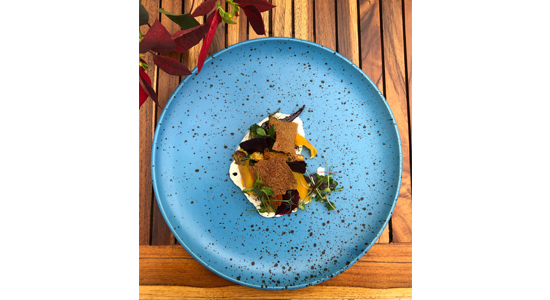
Tell us something about the ingredient. From where did you source it?
We get cereals, pulses and grains from local farmers with the exception of arborio rice which comes from Italy. Cheeses are sourced from different parts of the world while vegetables are all fresh and at times sourced from the hills depending on specific requirements.
You have got varied beverages options with unusual yet so flavorful with comprehensive range of cocktails with fresh ingredients and a wine list with depth that spans a host of countries and grapes around the world. What are some of the top loved beverages options?
In cocktails, we have some unique concoctions like Vulgare John (a smoked pineapple based drink), Honeydew Cilantro and Chewy Orange. These are also some of the most loved options. Besides that, our eclectic wine collection (which changes as per the season) is also very popular and we have a wine that fits every mood and occasion!
You have been reading, researching about wine for years. How do you see wine drinking change in India with time?
With respect to wines, people are far more open to trying than they were a decade back. Knowledge levels have somewhat improved thanks to the increase in traveling and this surely brings with it an increased demand and seeking new options. Hence, wine drinking is changing for the better in India but people are still price conscious when spending on a bottle of wine.
How are you pairing the beverages right for your cuisine?
The pairings come with a lot of researching and trials. Food and beverages pairing is both a science and an art and we switch between both as per the situation.
What trend according to you would rule Indian F&B in next few years?
Eating local and appreciating regional Indian food might be the next big thing in F&B. Specialised bars with well-crafted drinks and an international story might be another hit where beverages are concerned. Expect home bakers to scale and become commercial names. Take away and delivery will continue to surge.
Any plan expanding the restaurant? Or opening a new restaurant?
Yes, we are looking at adding another location in the latter half of 2019. It might be under the same name or a new entity altogether.

Rupali Bhatnagar has been in charge of winemaking for Sula's sparkling wines since 2008. Rupali has been an important part of Sula's journey in innovating and creating different types of wines. Initially, for method champenoise, only traditional varietals like Pinot-noir, Pinot-Meunier and Chardonnay were used. The challenge was that these varietals weren't readily available in India and Rupali could only use Thomson and Chenin to experiment with. There was an assumption that other varietals like Viognier, Riesling, and Shiraz won’t age gracefully in the secondary fermentation. After researching and several trials, Rupali created an unusual blend of CBL, Shiraz, Viognier, Riesling, TCU, RZIN to make a white sparkling base. It was one-of-its-kind, different and extremely tasteful. This was a huge success and there has been no looking back for Rupali ever since.
Rupali has successfully created India's first Sparkling Shiraz and is experienced in both the reductive and oxidative style of winemaking. Currently, she handles winemaking processes for wine varietals like Sauvignon Blanc, Chenin Blanc, Cabernet Sauvignon, Syrah, Viognier, Roussanne, Riesling, Zinfandel (both Red and Rose), Pinot Nor, Ugni Blanc, Tempranillo and Chardonnay at Sula Vineyards and also manages wine tastings and tours in Nashik.
Rupali Bhatnagar, General Manager and Senior Winemaker, Sparkling Wines at Sula Vineyards, talks about her approach towards winemaking.
Also Read: Mixologist Yangdup Lama Shares Tips On How To Appreciate Alcoholic Drinks
First Inspirations in Wine
I really don’t know if I was actually inspired by wine in the first place. I am actually a student of microbiology which contains a chapter on wine, basically fermentations. At that time, too, I was very fond of the topic. Moreover, my father was a part of Sula in 2005, when I just completed my graduation. Being a microbiologist, I asked him if I was eligible to do an internship. He introduced me to the-then chief winemaker of Sula, Ajoy Shaw, and this is how my journey in wine began.
Wines Produced at Sula Vineyards
They are as many as 34 wines in the Sula and Kadu portfolios. These include reds, whites, sparkling, rose and everything from dry wines, dessert wines and much more. We are continuously trying to introduce new varietals in the market.
Creating the Right Combination
My idea behind creating the right wine is basically to maintain balance - in terms of palate, flavour profile and texture.
Winemaking Philosophy
My winemaking philosophy is all about making delicious wines; wines that everyone can enjoy and love drinking again and again.
Click To Read: India Will Always Remain A Whiskey Country, Says Keshav Prakash
New Winemaking Equipment
All the winemaking equipment is impressive. Every piece of equipment is bigger and quite impressive. There are so many of them and all of them are meaningful in their own way.
Focusing on Sustainable Agriculture
More than techniques, Sustainable Agriculture is what the world is focusing on. Any vintner worth his salt knows that protecting the environment is more than just good for the planet – it is good for his wines.
Talking about winemaking tools, I would like to mention yeast as a tool. I love to use different kinds of yeast as it contributes so much to the flavour profile of the wine. I love experimenting with different yeasts and analysing the difference in palate.
Approach as A Winemaker in the Industry Segment
Again, my approach towards winemaking is to just keep it simple and creative, both at the same time.

Chef Chalapathi Rao, fondly known as Chef Challu, is one of the finest chefs serving South Indian cuisines in Hyderabad and abroad.
In an interview with Restaurant India, Chef Chalapathi Rao, owner of Simply South, talks about the expansion and growth plans of his restaurant.
Food Trends Are Like Fashion
Food trends and food facts are something like fashion. Everything has a shelf life. I started my journey almost two and a half decades back. The trends then were different. After that fusion and molecular food concept came to the fore. Now, again the industry is going back to the ancient grains and foods, and cooking methods also.
In the next few years, I see more of presentations and styling, if I talk about global trends.
'Entrepreneurial Journey is Quite Different from Being a Chef'
I was a chef at ITC hotel for almost two decades; I joined as a management trainee. I sharpened my skills in cooking. What I used to do for my personal growth was to go and visit different places and learn the cuisine from the traditional people of that particular place; this helped me in my personal growth. And if everything permitted, I would invite people, from whom I learnt the cuisine. I would let them taste the food and give me feedback.
Redefining the cuisine happens from what we do at home or at commercial establishments. Five years back, when I started my journey as an entrepreneur, it was very different. In a hotel restaurant, if any of the cooking equipment won’t work, the team will immediately act on it. Even if you want something else, you go straight to the purchasing department and tell them what all is missing; they will get it for you. But when you are an entrepreneur, you are a one-man army. You are the valet to the security guard yourself. It’s a great and challenging role. In a standalone restaurant setup, your mindset has to be different from what you have in a hotel.
Key Accomplishments of Simply South in 2018
In 2018, we were ranked by Conde Nast among the top 50 restaurants. The Week Magazine, which did a survey in various cities, had mentioned Simply South as one of the best South Indian restaurants in Hyderabad. If I talk about the revenue generation, overall, the restaurant has been in profit. When you have multiple ventures, one brand might be doing well and others may not; that balances. Overall the company is in good health.
Presence of Simply South in India and abroad and the expansion plans
Presently, in India, we are only in Hyderabad. We are working to open an outlet in Singapore; we had registered the brand in Singapore already. Our endeavour is to open two outlets in 2019; I cannot tell the locations right now. It might be Singapore and Bengaluru or Singapore and Hyderabad. Our endeavour is to be present in five different countries or cities in the next five years.
Take on Serving Authentic South Indian Dishes at Simply South
When we were opening Simply South, there was a lot of thought process that went into it. If you come to Simply South you won’t find any other food item on the menu except a south Indian, not even paneer. That’s the concept we have faith in and are still serving. It depends on the micro and macro market; demand changes. To give an example, at Hi-tech City which is a business branch, there we had thalis but people were asking for the buffet. Since there were many working professionals and probably they had an hour-break, we did a buffet out there, but maintaining on what we serve - South Indian dishes. We try to innovate within the gamut of South Indian cuisines.
Celebrating Food at Simply South
Food and culture go hand in hand. You cannot separate them. A community plays an important role in treating cuisine. Our focus is to put dishes of various communities or regions. For example, last year we did a food festival at Christmas. We did the regional cuisines from Kerala. Two years back, we had done what Christians eat during Christmas in South. On Eid-ul-Adha, we were probably the first restaurant in Hyderabad to do a dastarkhwan. We did murg shorba, mutton biryani, mutton korma, kaleji fry and more. We try to celebrate all Indian festivals as much as possible.

Breaking the stereotypes, women are now taking major roles in the food and beverage as well as the hospitality industry. Let's raise a toast for all these women who have set an example in the industry. Here are 15 powerful women who are making a bigger impact on the food and beverage industry.
Karyna Bajaj
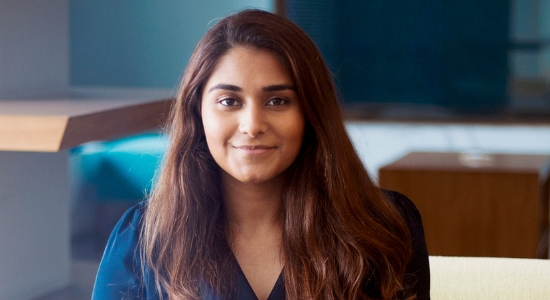
Karyna Bajaj, Executive Director at KA Hospitality, focuses on the financial and business strategy, as well as, restructuring and business planning for the Group. Karyna joined the business in July 2016 and has been instrumental in expanding the national footprint of the Hakkasan and Yauatcha brands in India.
In September 2016, Karyna and her team began exploring the market to identify yet another winning restaurant brand that would offer new and eclectic flavours to the discerning Indian diner. This led to Nara that opened in the third quarter of 2017 under the aegis of KA Hospitality. Nara restaurant represents the vibrant exquisiteness of age-old Thai cuisine and signature warmth of Thai hospitality to Indian diners.
Karyna is one of the few women in the hospitality industry in India today. Armed with a Bachelors degree in Communication and Business Strategy, her hunger for knowledge and curiosity is bringing a new dynamic within the Hospitality Group. Her latest venture is a first for her and KA Hospitality’s a focus on homegrown brands – CinCin. It’s an Italian inspired restaurant and bar situated in the bustling area of BKC and neighbour to Nara. A unique concept offering an extensive list of wines by the glass and cicchettis (small plates) along with a pasta bar and everything Italian! Spearheading this homegrown brand, Karyna is set to make sure that KA Hospitality builds its own brands and stays at the forefront in the Indian F&B industry. Click To Read Her Full Interview
Dipna Anand
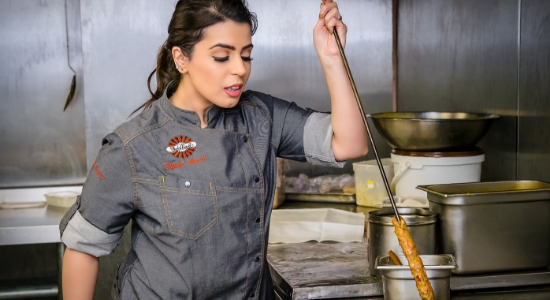
Dipna Anand is an award-winning Celebrity Chef, owner of Dip in Brilliant. She also co-owns Brilliant Restaurant in Southall, London. Her grandfather started the first Brilliant restaurant in Nairobi, Kenya in the 1950s. After pursuing her degree in Hospitality and Catering from The University of West London, Dipna started to teach as a guest chef. She also runs her own Cookery School at The Brilliant Restaurant in Indian cuisines. “My career took off when I won a national award on one of my food technology projects – Low Fat Indian Food - presented by the British Nutrition Foundation,” Dipna tells Restaurant India.
Beyond Brilliant, her very first cookbook was released in July 2014. The cookbook tells a story of the Brilliant family legacy and fifty recipes that were shared by Dipna’s grandfather. Recently, she released her second cookbook Dip in Brilliant; she had named her restaurant after her cookbook was released. Click To Read Her Full Interview
Lisa Suwal

Lisa Suwal, VP- Marketing & Sales of Prasuma Meats & Delicatessen brand since August 2016. Lisa’s father, Mahendra Suwal, entered the food and beverage industry with the launch of Prasuma brand over 30 years back i.e., in 1985. It was the first brand to start the ‘fresh and chilled’ segment in India. Ten years ago, Prasuma entered into retail segment. Currently, the brand’s presence is at 300+ retail outlets across 21 Indian cities.
“Growing up in a family involved in this business for over 30 years, I’ve been exposed to this business and the art of making good food as far as I can remember,” says Lisa.
Lisa has previously worked with Technopak Advisors, L’Oreal and Garnier. Click To Read Her Full Interview
Pallavi Jayswal
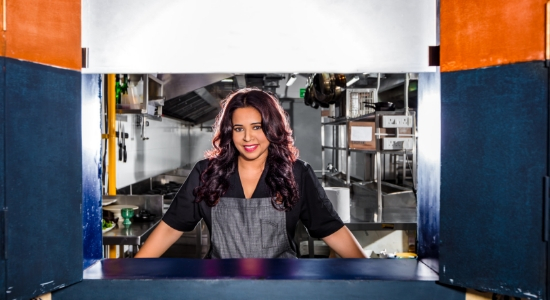
Pallavi Jayswal is a culinary wizard - chef, foodie and a businesswoman. She is the chef and co-founder at Uno Más -Tapas Bar Kitchen. She had also co-founded a company Nessun Dorma Food Ventures. Her first official culinary job was at the mecca of Indian fine dine, Indigo Restaurant at Colaba. She was entrusted to handle an entire section of the kitchen. She reminisces her time there by the fast-paced dinner services and long working hours. She has a Diplôme de Cuisine from Le Cordon Bleu, London and a Level 2 in Wines and Spirits, awarded by the Wine and Spirit Education Trust. In the following years, she worked with Thalassa, Indigo Restaurant to name a few.
Pallavi loves to travel and immerse herself in new cultures and cuisines. She has visited numerous places like Spain, Italy, and Vietnam to name a few. She believes in ‘Adopt don’t Shop’ and cares deeply for strays. Click To Read Her Full Interview
Rashmi Daga

Rashmi Daga is the founder and owner of one of the most exciting food-tech companies – FreshMenu; the company was founded in September 2014. Aimed at rescuing food- seekers from mundane meals, FreshMenu is on a constant quest to whip-up interesting food options in the kitchen’s spread out across the city that deliver freshly-cooked food to the doorsteps of its customers. Rashmi started her entrepreneurial journey with Afday.com, an online business which focused on selling curated art and craft products. She has also worked with Bluestone.com, Olacabs, LifeScan and TutorVista. She started her career as a Business Manager at IBM in 2003. Click To Read Her Full Interview
Pankaj Bhadouria
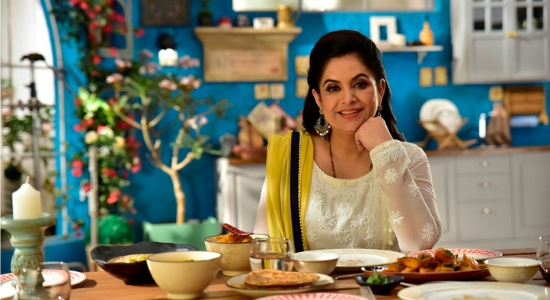
The big move in Pankaj Bhadouria’s life came with a small step when she decided to leave her successful teaching career spanning over 16 years and enter the first televised cookery reality show – MasterChef India. A major recognition and appreciation came Pankaj’s way when she was invited by Cambridge University to address the South Asian Community in Britain. She demonstrated some Indian foods for health-conscious people and managed to break the general British myth that Indian food is all about spicy curries and Chicken Tikka Masala. She is the face of many popular brands. Pankaj Bhadouria, currently, hosts the second season of ‘3 Course with Pankaj’ on LF Channel. Besides, she has authored and co-authored many cookbooks. Click To Read Her Full Interview
Sheetal Shah
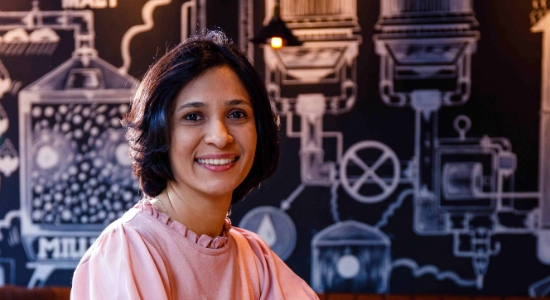
Sheetal Shah is the Managing Director at Drifters Breweries. Partnering with her husband in business and of course in life, Sheetal Shah defines strength with a positive vision of success and innovation. Managing the BKC outlet of Drifters Breweries, she is a woman who is fascinated by the world of craft beers and the bubbles in each brew. The daily operations side of the brew bar is constant learning for Sheetal, who hopes to open other craft beer serving outlets in major cities in Maharashtra. Excitement and vigour are her cornerstones as she appreciates how locals today love to experiment with different types of craft beers.
In Pics: 7 Women Changing Food Service Scene In India
Hopeful to expand in both directions, hope fills her as she would love to supply beer kegs to other outlets across Mumbai and Pune and of course expand the brand to new outlets. She also plans to open a bottling plant soon enough, one brew at a time. Her future plans include focusing on the expansion of distribution channels to other outlets in Maharashtra and is anticipative of the second level of funding or other associates for the bottling plant.
The customer is king is the motto that this businesswomen lives by and shares that “It is truly the customers who inspire me and I believe that it is our consumers who guide us and are the first foundation blocks to building a sustainable brand. I specifically set aside time to read customer feedbacks and derive value from their experiences. They inspire me to do things better and alter the course of action based on feedback attained”.
Sheetal Shah is an IT professional from Ahmedabad, Gujarat. She started out as a software developer for a year and then realized that her heart was in the hospitality industry. Venturing out into the food industry in Australia for 12 Months in 2009, she owned a pizza restaurant and comprehended her passion for serving delectable food to the community. In 2014, she started a fine-dine restaurant in her home town Vadodara, La Quello – a Mediterranean Kitchen. Click To Read Her Full Interview
Aishwarya Bhende

Aishwarya Bhende is the Director at AB Celestial, Mumbai’s first Luxury Floating Restaurant. The floating restaurant was launched in 2017. Exposed to European waterfronts from an early age, Aishwarya realized how they boosted tourism in those countries. Back home at the commercial capital, she saw a huge opportunity on its seaside which could add jewels to the crown of the city – Mumbai Skyline. This vision gave birth to an extensive 3-year process of building India’s first floating restaurant in a revenue-sharing partnership with the government.
By setting up the first luxury floating restaurant in Mumbai, Aishwarya has set the backbone for each process. The restaurant offers excellent delicacies from Indian, Continental and Asian cuisines with a fine, opulent ambience. Click To Read Her Full Interview
Garima Arora
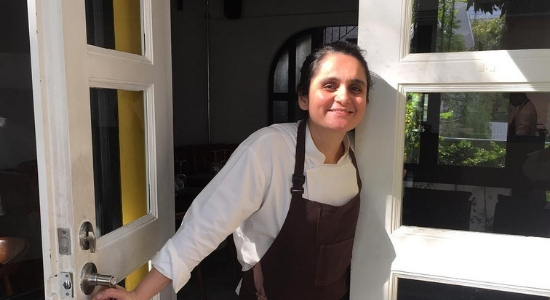
Garima Arora, the journalist-turned-chef, recently bagged Asia’s Best Female Chef 2019 Award. Her restaurant Gaa cooked up a storm when it was awarded the Michelin star within two years of its opening. She was also named in the Entrepreneur India's 35 Under 35 list.
Garima Arora started her career as a pharma journalist. She left for Le Cordon Bleu Paris, in 2008, to pursue her passion, cooking. Garima has worked with several renowned chefs including Gordon Ramsay and Gaggan Anand. She had also done an internship at Noma in Copenhagen, where she worked with Chef René Redzepi for three months. "I've always known I would want to have my restaurant one day. After some research into the profession, I decided to do it right then, as cooking is very demanding, physically and mentally," says Garima.
Speaking about her entrepreneurial journey, Garima Arora says, "The low is the long hours and missing all-time with family and friends, but running your own business is one of the most rewarding feelings. You work alongside your team day in and day out and you grow together."
Click To Read Her Full Interview
Avni Biyani
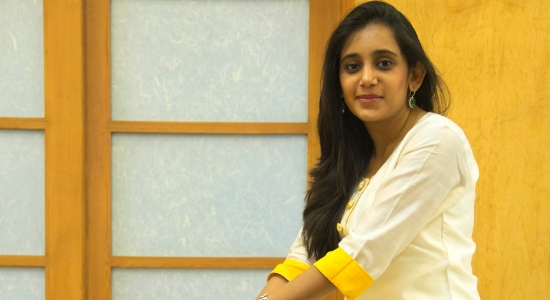
India’s largest gourmet store Foodhall has a fiery passion that has stemmed from Avni Biyani’s ambition to expand the realm of food shopping to a larger than life concept. The youngest daughter of esteemed Kishore Biyani, Group CEO of Future Group, she is an individual who commands her own respect with her ability to look beyond a simple food retail concept. She formally joined Future Group in 2011 as the Concept Head of Foodhall and there has been no looking back ever since.
Also a part of Future Group’s Integrated Food Strategy Council, Avni Biyani is also responsible for ramping up the Group's foray into the premium food segment. With a keen interest in the fashion and lifestyle segment of the business, she is closely involved with the launch of India’s first fast fashion brand – Cover Story.
Watching her vision unfold, she says “Food is a universal language that unites people all over the world, one taste at a time. Attempting to bring all food lovers under one roof and introduce various spices, ingredients and dishes from the globe to my store, it is exhilarating to watch as consumers get excited seeing their favourite brands from all over the world in India”.
Launched in May 2011, Foodhall is a one-stop premium destination for well-travelled urban consumers who have a deep appreciation for the nuances of gourmet cooking. With superstores in Mumbai, Bengaluru and Delhi NCR, Foodhall offers a homegrown range of products handcrafted by the in-house chefs of Foodhall, including flavoured butter, moist cakes, cookies, biscottis, Middle Eastern sweets, exotic jams, flavoured nuts, granola bars and more. Furthermore, Foodhall has a range of speciality brands for niche products— from an ARQA spice station to The House of Tea (THT) that retails premium varieties of tea and Foodhall Specials.
Dildeep Kalra
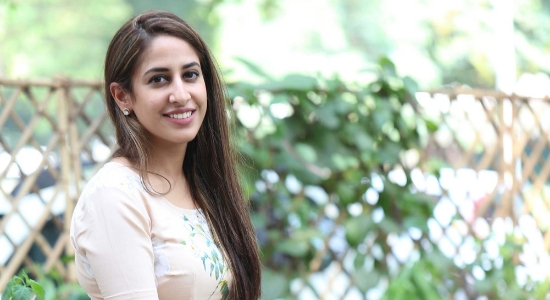
Dildeep Kalra is the founder and promoter at StyleHorn and Director at Massive Restaurants Pvt. Ltd. The perfect whiff of everything fashion, Dildeep Kalra’s style quotient is as massive as the portfolio that she directs. Her selection of designer heels, statement bags and impeccable fragrances lend an aura of dynamical strength and introduce her bent for all things nice. The pleasingly satiated face behind the successful Massive Restaurants Pvt. Ltd. and the man behind it – Zorawar Kalra, is that of an articulate, intelligent and self-motivated lady. Her foresight, strong business acumen and a meticulous eye for detail make Dildeep Kalra a visionary, who impresses and earns her commendable position as the Director of Massive Restaurants. With a penchant for fashion, design and visual merchandising, she brings her sense of art to the Indian and International F&B retail market.
Her foray into the hospitality industry dates back to 2006 when she ventured into the operational side of Indian hospitality. Hailing from a family where food equals love, she absolutely recommends Spain, Singapore, New York and Japan for an epic food adventure. Redefining the Indian hospitality industry with multiple offerings that are uniquely carving their own niche today, Massive Restaurants has literally made a massive impact on the way we wine and dine.
In Pics: 7 Power-Couple To Watch Out This Season
Dipti Motiani
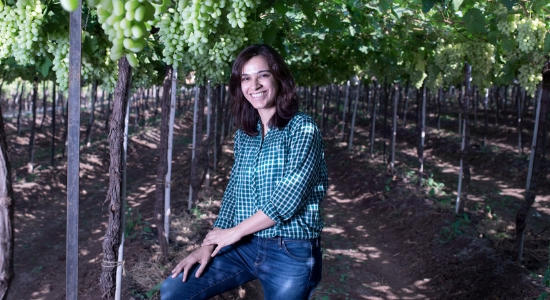
Dipti Motiani is the founder of Second Nature, a brand that is emerging as a forerunner in the cold-extracted fruits and vegetable juice blends category. She is also the Vice President of Processed Fruits division at Freshtrop Fruits Ltd., which is the parent company of Second Nature. Freshtrop has been a leading supplier of fresh Indian grapes to some of the most demanding Supermarkets in Europe consistently for over 2 decades and has now ventured into the creation of cold extracted fruit juices and nut milk through Second Nature.
Dipti has had a bright academic career. She excelled in school and topped her university in Computer Engineering. She moved to the US to Carnegie Mellon University in 2005 to further her academic ambitions and graduated with a perfect GPA of 4.0. Post her Masters, she co-founded Fabbrix Inc, a successful startup in the electronic design automation industry in Pittsburgh, USA. Fabbrix was acquired for over USD 6 million by PDF Solutions, Inc. in 2007. She continued with the parent company for two more years, post which she moved from the comfortable environment of Silicon Valley to ‘Savlaj’, a Maharashtra village 70 km from Sangli, to assist with the Freshtrop business, as well as getting a first-hand experience of rural India.
She joined Freshtrop in 2009, just as it was planning to expand into the fruit processing segment. With her exceptional hands-on approach, she has gained an in-depth knowledge and understanding of the technical and commercial aspects of fruit processing. She now spearheads the food processing business of Freshtrop and has developed a strong client base for its bulk processing business in both domestic and international markets. Click To Read Her Full Interview
Saba Gaziyani
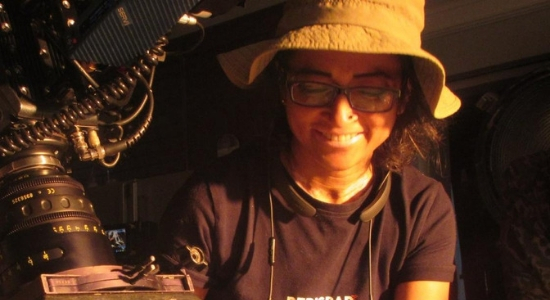
One of the leading food stylists in Asia, Saba Gaziyani is perhaps the only food photographer-cum-stylist in Mumbai. While she was still a junior chef at The Leela, Mumbai, Saba took up her professional career in food styling, in 1994. She started with an ad campaign. It was completely by chance! Since then Saba hasn’t looked back; it’s been more than a decade. Saba has been instrumental in raising the bar for food stylists in India.
Saba’s studio is located in Mumbai and is the only exclusive digital studio for food photography in India.
Rupali Bhatnagar
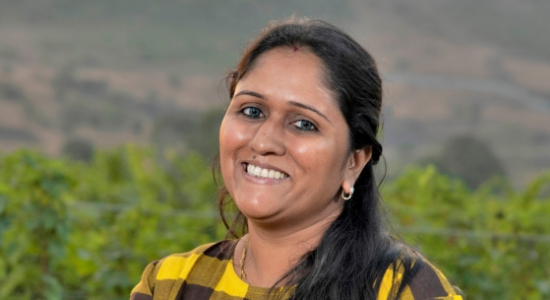
Rupali Bhatnagar is the General Manager and Senior Winemaker, Sparkling Wines, at Sula Vineyards. She joined Sula Vineyards as a lab-technician trainee back in February 2006. A microbiology graduate, Rupali was fascinated with the wine industry and the innovative approaches to winemaking. As a microbiologist, Rupali found herself to easily relate to yeast and fermentation process and, therefore, learning more about winemaking came naturally to her.
Rupali became a winemaker at a time when not many women were in the industry. She has been extremely hard-working and has proved her capability as a winemaker to the industry by giving in more than 100% and graciously being involved in samplings, loading and unloading presses, tasting, creating blends and many other activities. Rupali has outperformed herself in experimenting and creating different blends with complex flavours from grapes.
Rupali has successfully created India's first Sparkling Shiraz and is experienced in both the reductive and oxidative style of winemaking.
Click To Read Her Full Interview
Anamika Singh
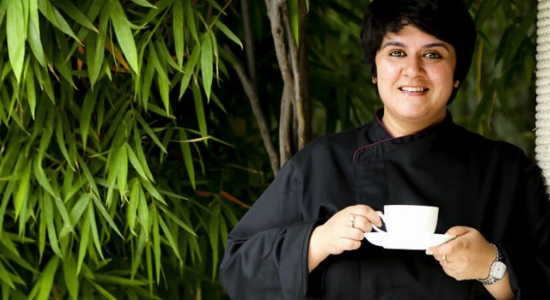
Anamika Singh, a tea sommelier, started Anandini Himalaya Tea in 1990; back then there were only two women in the industry segment. Anamika has spent over twenty years in the industry. She started as an apprentice under A. K. Singh, her father, who was a world-renowned tea specialist. Anamika’s family owns Manjhee Valley Tea Estate in Dharamshala. The Estate exports tea to the likes of high-end Parisian tea houses Le Palais de Thes and Mariage Freres.
Anamika’s Anandini - The Tea Room was launched in Delhi on November 15, 2014, wherein she conducts workshops for the tea enthusiasts and expats.
Click To Read More Stories on Women Entrepreneurs

Karan Tanna, Founder CEO of Yellow Tie Hospitality, started his entrepreneurial journey in the Food and Beverages Industry with the Gujarat-based chain “Kutchi King”. It grew to 200 stores in a course of time. But the growth of “my brand was not sustainable”, admits Karan Tanna, “and there were a few mistakes that we had made”. Despite being the second largest populated country in the world, India didn’t have any home-grown brands with over 1000 stores – the fact struck Karan. “This drew my attention to a huge gap in restaurant franchise management. This particular fact and the opportunity to disrupt it formed the basis of my company, Yellow Tie Hospitality,” says Karan Tanna.
Karan Tanna has also been named in the Entrepreneur India's 35 Under 35 list.
The Highs and Lows of Karan Tanna’s Entrepreneurial Journey
The 31-year-old’s entrepreneurial journey was no cake walk. He opened his first restaurant Goodies in Ahmedabad, Gujarat. “I had to shut down Goodies as I had certain troubles in my partnership. That was probably one of the low phases of my entrepreneurial journey,” says Karan Tanna. Because of his ‘never-give-up spirit” Karan continued his entrepreneurial journey in the F&B world and opened Kutchi King, the brand that took to 200+ stores in India, the Yellow Tie Hospitality followed later.
Must Read: Approach Investors With A Clear Business Plan
Yellow Tie Hospitality was launched in January 2016. It began with signing up an American brand Genuine Broaster Chicken. Within one year of its inception, the restaurant franchise management company grew to a team of 20 and 25 stores of Broaster Chicken across India. Karan’s past experience in the restaurant business gave the fruitful results in the expansion and growth of the franchise management company. He designed a scalable model for Broaster Chicken - engineering the menu, having a centralised production warehousing and a supply chain partner, focusing on recruitment, and training of outlet-level resource.
Initially, in the first two years, Karan Tanna focussed business incubation and brand acquiring process. “Now, we are looking at scaling all the brands at a rapid pace as we see the foundation of Yellow Tie has been built quite well and we have made mark across the country which gives us a basis to grow all the other brands in our portfolio in the same speed and making them sustainable at the same time,” says Karan.
What Makes Yellow Tie Hospitality Stand Out?
Speaking about the USP of his business, Karana Tanna says, “We have a very strong backend infrastructure in terms of experienced teams, supply chain and warehousing, R&D centre and a state-of-art turnkey software to manage our franchises.” Yellow Tie Hospitality manages everything related to a franchise - right from location and premise search to building the restaurant stores, recruitment, training, time-to-time new product introduction, social media and brand marketing; this leaves the franchise owner/entrepreneur to focus only on delivering the last mile consumer experience. This entire eco-system and partnership makes the franchise stores, and, hence, the brands sustainable.
“We focus on doing what we are best at, which is providing the brand support, background and the standards, SOP, recipe cards as a tool for franchise owners to follow, and they do what they are best at doing which is managing the store in entrepreneurial spirit which is best in that region. This makes our brand very different as well as sustainable,” adds Karan.
Also Read: Franchising In Food Industry Is Brimming With Opportunities, Says Karan Tanna
Catering to the Emerging Markets in India
Over the last three years, Karan Tanna’s Yellow Tie Hospitality has served more than 3 lakh customers and had sold 90 franchises, till date. Out the 90 franchises, 35 are under development. The franchise management company has its footprints across 20+ cities in India - Mumbai, Delhi, Chennai, Bengaluru, Hyderabad, Kolkata, Imphal, Lucknow, Patna, Pune, Gurugram, Surat, Ahmedabad, Vadodara and more. The brand has worked with 200+ entrepreneurs and successfully launched 60+ restaurants in 20+ cities, so far.
2018, A Pivotal Year
From the first fiscal year, Yellow Tie Hospitality was very healthy on EBITA. “We had re-invested in the company from the profits earned,” says Karan. Though the company has not raised any external funds yet, it will go with the external fundraising for the next phase of expansion.
2018 was a pivotal year for Yellow Tie Hospitality. “We kept on growing Genuine Broaster Chicken and took Dhadoom that was launched in 2017 to 20 outlets by end of 2018.” The company grew its portfolio to over 10 brands and now has a mixed bag of portfolio starting from international brands like Genuine Broaster Chicken, Just Falafel, Wrapchic and newly tied-up Taiwanese brand Chachago to the home-grown brands like Dhadoom, Twist of Tadka and BB Jaan.
The Growth and Expansion Plans
With a vision of producing the first home-grown international brand, Yellow Tie Hospitality launched its incubation centre in 2018. It aims to be a 100-store company by the end of 2019.
Yellow Tie Hospitality has seen 200% growth year-on-year and the EBITA remains constant between 22-25%. In the fiscal year 2018-19, Yellow Tie Hospitality will be doing revenue of 200% more than the previous year by maintaining the EBITA to approximately 35%.
Speaking on the growth plans Karan says, “This year we will see six brands from Yellow Tie Hospitality portfolio getting traction and hitting multiple outlets. A bit chunk of growth is going to come from Franchise owned, company operated outlets where we will be a couple of casual dining or bar concepts. We are very excited to operate the stores on our own (not franchise operated) and give adequate value to franchise investors.”

Vikrant Batra, a stalwart in the Indian food and beverage industry, is the mind and force behind the ingenious concepts of his stand-alone ventures, Cafe Delhi Heights and Nueva.
He launched Café Delhi Heights in 2011; the restaurant celebrates the saddi Dilli spirit, truly. Another venture by Vikrant is Nueva - a casual-dining restaurant with a luxurious stand-alone bar.
Being awarded numerous times by various food and beverage forums, Vikrant Batra aims to expand his restaurants globally. With the success of his restaurants, he has proven to be a man with great ambition and entrepreneurial skills.
Restaurateur Vikrant Batra, in a tete-a-tete with Restaurant India, speaks about the key challenges while starting a restaurant, and more.
Taking up the Family Business Reigns to Launching His Own Restaurants – The Journey
My parents started the Batra banquet in 1989. I started to work part-time while I was still in college. Seeing so much food around at the banquet, the foodie in me inculcated. I used to spend most of my time in the kitchen, with the chefs. I started taking the interest, then, on how the food was served and tried a lot of new cuisines. In 1993, while pursuing my Masters in Hotel Management, I started contributing more to the family business. It's quite easy to do the business when you are pursuing such a degree; it helps both ways. Later, I started taking full care of the banquet business. I started the outdoor catering all over India at weddings, receptions, birthdays and cocktails. That was quite an exposure for me.
Also Read: What Makes Aerocity A Location Ingredient?
I believe if you have done catering, you've done everything within the food industry. You learn a lot starting from taking care of logistics to taking food from one location to another and handling a lot of employees.
The business was booming but I wanted to do something more organized because catering requires a lot of legwork and a lot of one-to-one interaction with the customers all the time.
“Success is a process and not a destination!”
~ Vikrant Batra
I took a break for a while, and in 2011, I opened my first restaurant Café Delhi Heights at Cross Point Mall in Gurugram. My brother looks after finances and projects, and I take care of the food and operations.
Introducing Contemporary Cuisines at the Restaurant/s
Café Delhi Heights is a product of change, creativity, marketing, and, definitely, the content! I've been travelling a lot in the last couple of years. Whatever excited me or impressed me, I would take it back, and get it on my restaurant’s menu. I observed a continuous change and a lot of concepts evolving. By now, a lot of concepts have come to Delhi; the market is dominated by European and pan-Asian concepts.
During my travel to South America, I saw close relativity between the Peruvian and Indian cuisines. I wanted to make something which is contemporary. We talk about modern or new things at restaurants.
New has its own definition; ‘new’ is acceptable till the time it has an element of familiarity.
I found familiarity in Peruvian cuisines. I instantly knew I wanted to bring modernism in the food. Therefore, I launched Nueva, meaning new in Spanish. The restaurant, basically, is about the influences – the modern and the Peruvian. This is what I wanted to get to the table for people.
Serving Peruvian Food in Indian Market
We don't plan businesses with what we think will work. It is about what customers will like.
With people being very-well travelled now, they are getting experimental. Earlier, eating out was occasion-based activity. Now it's a need. People used to eat out only on birthdays. Now every day is an occasion. When I opened Café Delhi Heights it was a struggle for 24 months. It took time for people to adopt the concept. People accepted the concept of Nueva, too, and the response has been phenomenal.
Key Challenges While Starting the Restaurants
When Café Delhi Heights was launched the casual-dining restaurant format was not in the picture.
Initially, creating awareness was and still a challenge. The word-of-mouth works best in the industry.
When we started the restaurant, it was just the time when the ice-breaking social media was picking up. People were getting on social media, making food groups there was the continuous interaction about the new things happening in the town. That really helped.
With Nueva, it’s different. Now the industry is evolving in days and hours. The acceptability, the knowledge and the means of awareness are accessible in everybody's hand, practically.
The Biggest Customer Engagement Mistakes
No one as an entrepreneur wants to make a mistake. And the biggest risk in life is not taking it.
So it is just about the best communication with your customers. The quality of food and the experience you give. If that is not your strength and you're not focusing on it then you already made a mistake of being in the restaurant industry.
Restaurant Operations in India as Compared to That of Foreign Countries
With the availability of the blessing of the population in the country, the restaurant industry as a whole has been able to give a lot of job opportunity and, thus, the revenue generation. And as far as service standards are concerned it's majorly about your own internal upgradations and the training you have been through.
Must Read: 5 Growth Strategies For Restaurant Startups
It's very difficult to compare an ‘A’ country's culture to a ‘B’ country's culture. Definitely, if you compare with a particular country where people are time bound by the clock, the standards are different and in restaurants in Western countries, the label is way expensive. For example, the customers, there, are supposed to pour water themselves while here in India, the consumers need to be pampered a bit, the waiting staff has to pour the water, place the napkins, and even refill the glasses all the time. I can't, really, compare the two concepts; it depends only on the culture.
Approach Towards Supply Chain Management
The success of any business depends on the supply chain. It is a much bigger concept than it may seem. It involves the process from procurement to availability, quality audit and reaching to the restaurant. The customers directly or indirectly become part of the supply chain as the end product reaches. It's the most critical thing to have a great supply chain.
To give you an example, we'd made a central storage system. We have a base kitchen where we centrally procure everything, and dispatch in our vehicles, to maintain the quality. Secondly, the supply chain is very much under our control and the vendor gets the comfort of supplying everything in one place. See that's a very critical cost consciousness.
Advise for Restaurant Startups
- No discouragement but the restaurant industry, right now, has the biggest failure rate which everybody knows.
- To start a venture, you have to be a pre-startup, do things on your own and gain experience as much as you could.
- Your operating plans have to be very clear and focused.
- You have to be passionate about your restaurant startup.
- Don't make mistakes of overspending from day one.
- Be clear about what you want to do.
- And please don't lose focus on the main content of the food industry which itself says – food, food and food.

“Melody the beat shop”
Sandeep Chattoo had this entrepreneurial string from the very beginning of his life. Before venturing into hospitality business, he started a music shop whilst he was an engineering student in Bangalore in the late eighties, as Sandeep always had a strong inclination towards music. “The idea of being an entrepreneur was always on my mind as I’ve wanted to do things differently for as long as I can remember,” added Chattoo who way back in May 1990, organized the first ever music concert by a band from Bangalore called “Shyam and the West Wind” to perform at the then only auditorium in Jammu. “It was a huge success but I couldn’t run that professionally in the long term as the then exodus of the Pandit’s had my family move base from Srinagar to Jammu,” he pointed by adding that they were fortunate to have a roof over their heads, a house and the backing of Nestle who they supplied dehydrated Mushrooms to. The journey there after has been stormy since he had to take quite a few decisions most of which have been circumstantial. Excerpts from the interview:
How did you venture into the hospitality business and then Real Kashmir FC?
I already had a shop in the very premises of the hotel. I made enough to offer to buy the entire building after a couple of years. Renovated the entire structure and soon opened up. Thought I did not have enough experience in the hospitality business I toyed with handing the entire business to a hospitality chain. Talks were on but I never concurred with their vision. I decided to risk it and run the business myself. I relied on common sense plus a sense on how I should be treated if I go out. Unfortunately after a successful first season the hotel took a major setback during the floods. We had to get back to drawing boards after that. I worked manually along with the other workers to get the things moving. It took us a while but we managed it. This was also during the time when Shamim approached me with the football idea to formulate and showcase the real side of Kashmir through football. After going through so much distress myself, I was more than willing to help. Soon this little club not only gained momentum but also started to become popular. We searched for players, hired coaches and started a platform for kids to play. We further segregated the kids under various age groups. We competed in the Durand cup in 2016, emerging as the champions of the I-league second division in 2017-18 season and now making our fairy tale dream come true in the first division of I league.
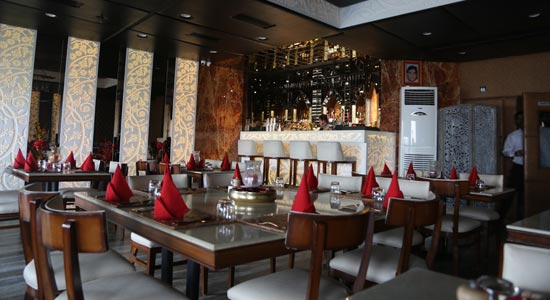
Tell us more about Junoon. The idea on starting an authentic Kashimiri restaurant in NCR.
Most friends who live out of Srinagar have been ardent fans of the Kashmiri cuisine. I remember freezing ristas and flying it to friends in Delhi. Hence, the idea of opening up Junoon, an authentic Kashmiri restaurant in NCR. It still is at its baby stage taking baby steps but anyone who eats here have always praised it. That keeps us going.
We have restaurants like Chor Bizzare, Khyen Chyen serving Kashmiri cuisine for ages. Do you see any competition from them?
Any eatery will always be a competition but places like Chor Bizzare & Khyen Chyen have their clientele fixed. There is more than enough to go around for all of us. It is really encouraging to have some good competition around; it keeps us on our toes.
What is your USP?
You are Special and will be treated like a king! That’s our USP!
Who is your target customer?
Anybody and everybody looking to experience authentic Kashmiri cuisine is our target audience. We aim at selling the entire experience and not just a meal to your customers.
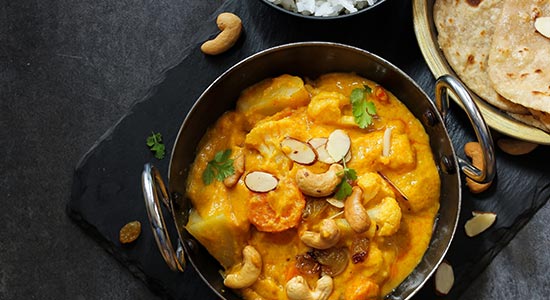
What according to you is 3 Keys to running a successful hospitality venture?
- Keep the employees Happy
- Happy Employees keep happy customers
- Happy customers keep the business running
What is your expansion plan taking your restaurant to other parts of the country?
We do have expansion plans and would want to take it up step by step.

When Starting a New Restaurant
Understanding the Catchment: One of the important things when you are starting a restaurant is to understand the catchment and where the gap is for a particular market. You may want to start an Indian restaurant but if there would be 20 Indian restaurants in the neighborhood it might not be the best idea. So, you need to find out where the gap is what that market requires and start your restaurant based on that.
Keeping the basic Right: Always ensure that the food is authentic, delicious and is on point and same goes for beverages. So, even if you have a lounge bar where 70% of the sales comes from beverages, the food is an important criteria to keep the customers coming back.
It’s all about Service. Service is an important part in the restaurant business because the customized service is one of the important parts. You can run a restaurant at 500 for two people and it could be 2000 for two people but service is the most important part because people need to feel comfortable coming to your place.
Keeping abreast with trend: No matter what is your concept and what are you serving, you always need to be in line with the trend. It is one the key factor in restaurant business by making sure that your restaurant concept is innovative by understanding the pulse of the market.
Finding the X factor: It is very important to create the buzz about the brand. There has to be vibrancy to a place. You might have the best food, the best everything but if there is no X factor then it is very hard to run a successful restaurant.
What’s special about your Restaurants?
Being from the real estate fraternity my specialty is in space. I look at various spaces and see what is the best and the highest usage of the space. So, we had the World Trade Centre and it had the rooftop completely empty so I said what use we can do the best and hence came up with a rooftop restaurant. All over the world, the top most cities have the sky scrapper with large rooftop restaurants where people can visit the place and see entire city. So, I thought Bengaluru doesn’t have the one and the World Trade Centre is the highest point in the city so why not create a rooftop lounge for that space. Then, we found an empty space lying between the World Trade Centre and the Sheraton Brigade Getaway which was lying from last 6 years. Since, it was a long bridge it made sense for an art gallery. So, the concept of café came up combining art and understands millennial to understand art better combining the two together. What keeps me going is that the spaces are utilized efficiently.
Way Forward
A lot of restaurant owners are being smarter about the capital investment that they are putting into their restaurant. So, the restaurants are becoming a little smaller, owners are being careful about how much they are spending on efficiency of a restaurant. They are coming up with wacky interior fit outs but they are making sure that they are not spending as much in terms of the lavishness of the restaurant. It’s more funky, more quirky and something that the millennial want. On the food perspective I am seeing lots of healthy perspective in the food.

Tell us about Simba. How is it different from others in the market?
When I was studying in the UK, I saw a huge beer market with different styles and variants of beer which were hugely missing in India. Back in India the only difference between the beers were the labels. Since every beer was providing the same style and similar quality, I felt that overall per capita consumption was also fairly low. In 2009, I decided to start my own brand to make craft beers and applied for the brewery license. In 2012, we got into the construction of brewery business by setting up the plant in Chhattisgarh. Getting into manufacturing was a new experience for us, so for two years we started contract manufacturing for SABMiller. Running brewery for a global brand gave us the required experience as it taught us the different nuances of the industry where we understood the parameters to be considered for delivering quality consistently and hence gradually we mastered the art.
In 2016, we completely exited our distribution and retail business and officially launched our own brand by putting in huge investment by setting up the brewery only for Simba. Much before I decided to start a brewery, I had my heart set on the name Simba. So we didn’t really go through a naming exercise when we launched it. I loved the name already and it fit perfectly with the brand we wanted to create for our brewery - authentic and pioneering. The one thing that sets us apart is that we have our own Brewery, which was the only craft brewery in the country at the time, this gives us an edge over our competitors as most of them outsource the product.
How have you priced your beer?
Rs 110 for Wit and Rs 150 for Stout pint
Who do you target as your target audience?
Simba is a very fresh yet coming of age brand that is appealing to mass audience from a first time drinker to a whisky lover. Millennials with a higher level of education who are aware of craft beer mechanism and have an exposure to global trends are the ones who will appreciate our product. Also Consumption trends towards quality and premium products and people with higher spending capacities are our targeted audience. We are preparing ourselves for the next generation, people now do not want to drink what their father used to drink, so we are trying to diversify from the traditional brew.
Tell us about your retail as well as HORECA presence.
We have maximum coverage of retail outlets + placement in premium liquor stores with high visibility
HORECA – placement & association with all premium and strategic outlets across Tier 1 & 2 cities.
What is the quantity of beer brewed per month at your brewery?
300,000 cases per month capacity
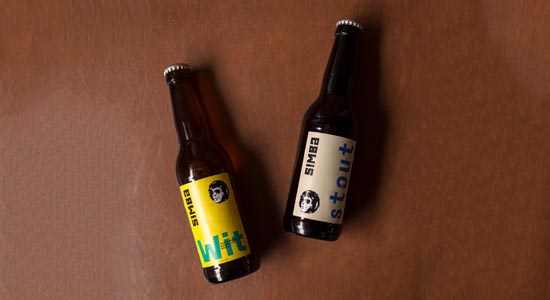
What were the challenges faced while setting up the brewery?
India has a large liquor market than a beer market. The major challenges would be managing the growth and demand. Among the many challenges we faced setting up the business, one of it being getting the land for setting up the brewery as the nearby villagers were not supportive for opening up a liquor factory. Also a major hurdle was acquiring a Brewing License. Since our family was always in the liquor business of retailing, we had the idea about the industry and distribution. However in 2009, I decided to start my own brand to make craft beers and applied for the brewery license right before going to college and the license was issued to us after I graduated. It was a challenge to bring together the old traditional methods to create something new and fresh for the market.
Tell us about the varieties of beer you brew. From where do you get the raw materials?
Simba craft beer is available in 4 styles; 2 distinctive variants, including Simba Wit, Simba Stout and 2 regular flavours including Strong & Lager (only available in Chhatisgarh, Jharkhand and Assam at the moment). Simba Wit is a refreshing beer made with a hint of orange peel, coriander and lemongrass. It is light bodied which makes it crisp and easy-drinking. Simba Stout is a dark beer, with an ebony colour and voluptuous mahogany head. It has a rich creamy acquired taste with a bold hearty flavour.
India doesn’t have good quality malts yet, hence we did not want to take risk on that and most of our ingredients are imported. Some raw materials are procured from local markets like rice comes from Chhatisgarh, water is from the river nearby after undergoing water treatment facility which becomes equal to as good quality as found in Europe. We get imported malts i.e barley and wheat from Germany & France. Different varieties of Yeast are sourced some from Germany and UK. We’re currently experimenting with several different styles of craft beers at the brewery. Once we are happy and satisfied with the new flavours, we will bring them to our customers.
Tell us about expansion plan both in India as well as global markets?
Currently we are available in 8 markets in India. After a successful stint in Chhatisgarh, Jharkhand, Assam, Madhya Pradesh and popular destinations like Goa, Delhi NCR and Bangalore recently, we're really excited to and looking forward to our launches in Mumbai and Kolkata soon. With the growing demand, we have acquired the license to increase our own capacity for our unit in Chattisgarh, we will be looking to setup a new unit in 6-12 months from now.
What trend you see happening in 2019 when it comes to changing drinking culture?
In coming times, there will be newer variants and experimental brews. New age brands are willing to try and test with new flavours with the evolving drinking culture. Also many craft beer brands will start venturing into Tier 2 cities aggressively.

What was the whole idea behind setting up a Detroit Bar?
The number of places that looked like different versions of each other got us thinking on concepts that would stand out. A garage bar and kitchen was a concept almost not-attempted anywhere. Although the concept was quite fascinating, it posted quite a few challenges, but we were up for the task.
How it all began? What was the inspiration?
It began with just a rough sketch in the mind and only after quite an extensive hunt for the right property. Post which the architect did what they do best!
How much money you have invested in coming up with the bar?
The money is quite a handful but I believe we've managed to strike the nail on its head with Detroit. Like any other restaurant a sizeable amount is spent on doing up the property and if you are in perfect harmony with your concept, and it is well accepted, the restaurant can very easily beat any industry hands down.
We see that nightlife scenario is changing in India with new age bars. What are some of your tricks to fit into the fast evolving market?
My personal perception of the nightlife scene in Delhi is that it's not really big on Nightclubs. And a number of bars have actually rebranded themselves as places that are more pub oriented rather than discotheque oriented. I feel the folks in Delhi like a place to enjoy a drink and snacks and maybe shake a leg. The market is definitely fast evolving but it's definitely very well defined if you look closely. It's the restaurants that know their game that is setting the trend.
Operating a bar comes with a challenge. What were the hurdles that you faced while getting the setup and the licenses done?
The challenges to set up a business in any developing nation are quite a few. Especially so in India. However, patience is the key to success when it comes to procuring licenses in the city. It definitely needs a lot of improvement. And I feel the Department of Tourism should look at the F&B Industry as seriously as other ministries in other countries do.
We see beverages as a segment has become much more elaborate and extensive. What are some of the uniqueness and experiment that you do with your beverages?
Every restaurant should have a well defined USP or rather a concept and right from the kind of cocktails, the food, the service to the vibe of the place should be in sync. If a restaurateur gets these in place and in harmony with the concept he's pretty much made a legendary restaurant. We've been quite experimental with our drinks especially the Long Island kinds.
How about designing the place. What were the elements that were taken into consideration?
When we thought of a garage bar we kept facing a challenge of what we didn't want it to look like. Trying to get a concept like this right meant we couldn't look trashy and run down. Obviously, the experts on board with Interior Design helped out quite a bit. We took everything that could relate to the motor industry, we took the vintage car and petrol pump handle and so many more elements and made Detroit what it is today. A garage bar & kitchen.
You are running multiple concepts. How difficult/easy it is for you to manage?
Once you get a hang of things it is easier than it sounds. The idea is to know how much you want to rely on technology to ensure you don't need to be physically present all the time to keep a check. Over the years I've managed to get a good hold of certain systems and a good training session with the boys before they join ensures the systems are maintained. Having said that, it's not easy, but very well worth it!
What is the plan for expanding your brands and opening more new ventures?
The expansion is always on the cards! It’s the essence of a business in a country that is so rapidly developing. We've been offered a number of ventures but we're keeping it on hold till the New Year. 2019 will definitely see a lot more of us.
What trend do you see will rule 2019?
I'm not expecting any drastic changes in the industry as such. But I do firmly believe Gin is going to be really big in coming years. I also feel and hope that Delhi gets around to allowing microbreweries in the city. It’s such a huge game changer for the industry and something the F&B Industry could definitely do with.

Entrepreneurs in India are experimenting with unique ideas to cater to the various taste-buds and the odd-hour demands of the working class. From healthy food options to online ordering convenience and home deliveries the way to cashing in from middle-class pockets is surely through their stomachs!
For the past 46 years, K Hospitality Corp has marked a great presence and the group has been through from various concepts stating from restaurants and banquets to airports and other formats as well. Travel Food Services operate food & beverage outlets in travel locations, with approximately 170 units in India, including at six major airports in domestic and international terminals and in railway stations. It also runs a number of airport lounges, including the acclaimed GVK Lounge at Chhatrapati Shivaji International Airport.
Talking to Restaurant India, Varun Kapur, Executive Director, K Hospitality Corp shares the future of Food Business in India.
The Food Drive
For the past 10 years, Varun has been in the business, worked as an investment banker at the Bank of America’s Leveraged Finance Group, before returning to India to join his family’s expanding business with operations across F&B, first class and business class lounges, and retail.
Currently Varun is spearheading the growth of the group's foray into the travel sector under Travel Food Services (TFS) and has grown it to become the largest F&B player in Travel Retail in India.
“We operate restaurants across various formats in India including at airports, food courts, malls as well as high streets. We have brands like Copper Chimney & The Irish House in our kitty. We have tried creating concepts that are relevant for consumers today”, said Kapur.
More Profit Means More Business
In today’s time, a lot can be put in to make it more a profitable and a sustainable business. Kapur stated,” The starting point is the product and the experience and if you get them right, things will automatically fall in place in the business.”
Commenting on the F&B Industry, Kapur said,” If you enter for profits, it’s not the industry to be in. We all want to earn money while being passionate about our business. Ultimately it is your consumer, say when you are selling food; you are selling your emotion. What we create needs to be as far as possible what the consumer wants.”
Food For Thought
When asked about his presence at the IRC 2018, Kapur said,” With the greatest minds of the industry, this platform sets the tone, sets the place for ideas to be put forward and discussed for the way forward for the industry. Take those learning and see how you grow your business.”

“I started off 16 years ago, and today I have 44 restaurants in 11 cities across India,” says Amlani, who owns country's first completely indigenous and eclectic café chain Mocha, the unconventional Smoke House Deli and Social, a ground breaking space that has revolutionised co-working spaces in India. Here are the excerpts from the interview:
Share us your opinion on the F&B Industry today?
It is a very exciting space to be in. F&B as an industry is just beginning to take off. Everybody in the restaurant industry is in the right place especially the people who have years of experience because they are aware of the challenges and are better equipped to face the future. There is a steep learning curve in the restaurant business, as 90% restaurants don’t survive more than 10 years. Nonetheless, it is a rewarding time to be in the industry now.
When you started, what initially triggered you to run this business? Was it Food or Beverages?
It was purely entertainment. I got into this business from an entertainment perspective, wanting to create places where people thought couldn’t be entertained. My idea was to build a space around human conversations. It was not about the food or the drink. Our first outlet was called Mocha- Coffees & Conversations. Creating a Space which was conducive for conversation was my triggering point to be in this business.
With such fine concepts like Mocha, Smoke House Deli & Social, what was the idea that led to the birth of such landmarks?
Earlier, there was a thought that if you are a brand, you need to provide the exact experience. Nowadays, people get tired of monotony, and always in the search of something new. With each Mocha & Social, we try to explore a new dimension which is unexpected in terms of design language that sets the tone for a theme. We are more into the language of the design rather than the theme.
With a lot of developments happening in the industry, where are we still lagging behind?
There are times when people try to exaggerate and take things too easily. There is no substitute for focus and hard work. Your brand should deliver what it says on the box. When you go out for a particular experience, you shouldn’t be given more than what you want or vice versa. There is no room for anything which is lower than the top 10 in each category.
Do trends fascinate your business?
I have always tried to stay away from trends. My definition for trend means it will go and come. I have followed people and tried to understand what they want. Likewise, figuring out what people want is not trend forecasting, it is rather demand and supply.
Tell us about your future prospects?
I plan not to plan for more than 3 weeks. Everything is very dynamic and evolving. We are not operating in a vacuum. You are responding to the environment and the environment is just changing all the time. You have to make your plan bend down to the universe. So, as I say, if you have a plan longer than 3 weeks, chances of not working out are more.
With Technology taking an upper hand in this industry, where do you see the F&B Industry heading?
I definitely see the consumption pattern changing in the near future. Eating more meals out of home will increase while cooking at home will be a tedious task. Right from buying vegetables to cutting them, people will prefer ordering or eating out. Evolution is soon to catch up in India.

Varun Puri has always endeavoured to not take shortcuts and keep re-inventing himself, pushing himself a little more extra to bring the smile on customer’s face. Viva Hospitality has till date come up with many unique concepts – including Molecule, Lights Camera Action, their vegetarian paradise called Imly, the latwst offering being the 'Duty Free'. With his strong sense of food and his fusionistic vision, Puri is all set to revolutionise the restaurant business in India.
In conversation with Restaurant India, Varun Puri, Founder, Viva Hospitality talks about the other side of the industy and how he has managed to evolve amidst all of it.
How has been your experience in the F& B Industry?
Food & Beverages have always been challenging. New restaurants and cutting edge concepts doing innovative stuff is definitely the need of the hour for the industry. Anything which puts you on a different scale and beyond your competition will definitely have its volume and share of success. As far as current situation is concerned, our industry is going through a rough patch. With GST hitting the market, it has been an emotional moment for all the restaurateurs with a 20% setback in the business.
How did Imly happen to you?
Imly was my first restaurant concept. I always wanted to do something for the masses by presenting a product to the country which brings generation together. The name itself signifies a ‘Chatpata’ Stopover. We made a fancy looking conceptualized restaurant across Delhi NCR. All Imly’s have a distinctive identities and it’s not just a meal at Imly’s but an experience when you eat out.
What are the challenges restaurant startups undergo initially? How to overcome those hurdles?
In my opinion, retaining your resources is the biggest challenge, as some of the employers do not belong to a professional background. Attrition is very high in the industry. All successful restaurant owners know the importance of hiring and training the right employees. Yet the common problem exists as many restaurants hire the wrong people and have a high turnover rate. An incompetent staff can also irreparably damage your current and future customer base.
When alcohol is concerned, where are we lacking behind?
It is time that we give some amount of freedom and change the decaying old books. The drinking age should be given due importance to. We need to revisit laws that has been imposed by the government. We wish the system becomes more transparent. The industry is giving out so much of revenue; measure should be taken to promote new restaurants.There should be a single window concept to make it easier for a new entrance in the business.

Started in Chennai, this cafe has become a landmark on the busy streets of Kotturpuram Main Road, and also the hub of a bustling cycling community. Ciclo Café reflects the creativity and innovation that missions to bring all cyclist enthusiast and food lovers together under one roof.
The Chennai chapter for Asish Thadani began in 1999 where he handled Ford India’s complete outbound logistics platform. Recognising the emergence in India of a rapidly growing tribe of urban, health conscious sports and food aficionados, Absolute Speciality joined hands in 2015 with TI Cycles, to create Ciclo Cafe, India’s first bicycling cafe. The name itself defines what this venture stands for. Ciclo means ‘Cycle’ in Italian.
In conversation with Restaurant India, at the Indian Restaurant Congress 2018, Ashish Thadani, CEO, Ciclo Café talks about his venture and how passion for food and cycling is helping him run this successful business.
Tell us about this unique concept of your brand.
India's First Cycling Cafe Chain, Ciclo Cafe is a hub for cycling enthusiasts across India that provides top-class lifestyle facilities for sales and service of premium bicycles, merchandise and accessories, expert advice on cycling, special activities and customised cycle rides – all accompanied with world-class hospitality in the form of premium F&B services with international cuisines. The Ciclo Cafe has bicycles priced from 5,000 and go up to 8 lakh for racing bicycle range.
What initiatives are being taken to keep your brand in the forefront?
It’s a cycling café and this unique concept that has grabbed the attention of many youngsters, families, kids who when they see bicycles in such a cosy surroundings, get tempted to try one. At the end of the day, it’s a cycling café. It’s more about good food and healthy lifestyle. We keep innovating with food and keep changing with the lifestyle. We also arrange cycling events, rides; there are few runs that start from our restaurant itself. It’s not just a restaurant. It’s a mix of both that promotes a lifestyle.
How do you plan to scale your business?
Right now, we are present in Chennai, Hyderabad and Bangalore. We are looking to adding more stores in the cities and then moving to other cities where food is important and also cycling as a culture is prevalent. Cities like Pune & Goa is on our list.
What are your franchising plans?
In our business, passion for the sport is very important. If someone is passionate about food and cycling, then definitely we can work this out.
What plan do you have to make this business profitable rather a sustainable one?
Innovation is very important and especially when you have brands trying their best to be in the rising position. Understanding what your customers want in terms of food, ambiance and even in terms of sports programming, what we do, we have to cater to them. Adapting to one’s space is of utter importance as it is a constant game.
What is your Takeaway from Indian Restaurant Congress 2018?
Every market is different. It’s good to interact with people from the industry, taking their insights and keeping knowledge of what’s happening in other cities.

Its popularity caught the fancy of people and with the unavailability of Bohri cuisine in the market; The Bohri Kitchen, a pop up that invites guests to illustrate the best of Bohri cuisine at Kapadia’s Colaba home, brought a different rage for all the food lovers, adding an extra zero into their business. Launched 3 years ago, this kitchen lets you savor a paid home dining experience with your friends and family.
In conversation with Restaurant India, Munaf Kapadia, Chief Eating Officer, The Bohri Kitchen shares how unintentionally he got into food business, changing the concept of Home Chefs in India.
The Food Journey
The idea to invite people over for a paid meal was a hit and that’s how The Bohri Kitchen, a concept food dining experience in Mumbai, was born. We started 3 years back and it started off as an experiment. Today, it looks like I am running a food business.
When we started, Munaf said,” The goal was to keep my mother busy and somewhere along those lines I discovered that The Bohri Kitchen has turned into an opportunity for me to try being an entrepreneur.”
Though there was a gap in the market, where Bohri food is unavailable, the concept of opening a restaurant demanded the financial bandwidth or risk capital to open a restaurant.
“It truly makes me happy with the kind of accolades, support we have received and slowly and steadily it’s teaching me as a person in terms of how patient you need to be and what challenges you need to go through while running a business”, added Munaf.
Make it Profitabe & Sustainable
The restaurant industry is currently going through unprecedented change with delivery as one of the fastest-moving trends in its history. As the availability of online ordering, delivery and related off-premise channels continue to proliferate, the impact on in-restaurant dining as well as brand and quality perceptions are an ongoing concern.
Munaf said,” The home delivery segment has immense competition in the market, and somewhere down the line, unless you are a multibillion dollar brand, you need to stop worrying about competition; you need to focus on what your strengths are.” And that’s kind what he is trying to do.
To crack the delivery business, Munaf is following food trends, and working on giving his menu a healthier twist. “Our story is defeating the clutter that we operate it”, said the young entrepreneur.

He rose to glory and fame after being selected as one of the few to attend Master Chef Classes at the World Gourmet Summit in Singapore. Having worked at many prestigious and coveted Hotels like the Taj Group, Oberoi Group, Jumeirah Beach Hotel, Dubai and then restaurants like Olive Bar & Kitchen, LAP, Olive Beach, Cibo, he is now heading Dusit Devarana.
Chef Nishant Kumar Choubey, COO, Swaad Samudra Private Ltd spoke to Restaurant India on what it takes to be a successful chef and the scope of this industry in the future.
The Remarkable Journey
Started off with Raj Vilas, Jaipur, Choubey said,” I was doing everything from moping to dishwashing, to learning from the chefs, and moved to Dubai, where I helped opening 2 of their signature restaurants which are doing extremely well right now. In between I am consulting for a restaurant in Bangkok called, Indus which has already become a Michelin Star Restaurant.”
Chefs Everywhere
The overwhelming growth of the hospitality industry all over the world has tremendously increased the demand for specialized chefs both in India and abroad. A Chef’s profession today is looked upon as one of the most sought after jobs owing to the high opportunities of making good bucks. Budding entrepreneurs today are in search for opportunities to be chefs, gaining exposure in the Restaurant Industry.
In the present scenario, Choubey explained,” The placement of chefs are much more than the engineers today. This gives us an insight of how good this industry is. Commitment and passion is all that this business requires.”
The Challenges
One of the major challenges Choubey said,” It is the consistent supply of the raw materials and to ensure quality it’s very important to get the right kind of supply on a daily basis. In the current scenario where the rupee is sinking against the dollar, the suitable vendors are not ready to get into a contract system. Hence, to combat the challenge we have started growing most of the raw material at our farm house and are not depending much on the vendors. The other challenge is the price.”
“Since the commodities are getting expensive, the food industry is getting directly affected. The ingredients are costly, and at times it becomes a huge challenge to justify the same to our guests”, said Choubey.
A Good Customer Experience
The efficiency of any chef can be instantly recognized by the presentation and quality of food they present to their customers. A chef not only needs to be versatile in his cooking, but should also be familiar with the cuisines of various other nationalities. Typically, French, Italian, Continental and Chinese are the favorites in major cities across the world. Therefore it is important for every prospective chef to select their area of specialization according to their interest in confectionary, cold kitchen or hot kitchen.
“Food is the key even when you don’t have a good infrastructure. People really come back for food”, said Choubey.
The Indian Restaurant industry needs to improve on the service part. There are places that are serving really good food but they lack in their service. To be a Michelin start restaurant, there are other areas of concern that needs to be addressed apart from food.
Tips for Young Chefs
Hard Working to start off, Commitment throughout your life and be passionate as you grow.

The food industry is a combination of many diverse businesses and it is responsible for feeding the world population. Every year, we are hit with different food-trends that change the way we eat; it's vague enough that people are eating bubble waffles, chocolate momos and tandoori pancakes. Now we also have restaurants trying fusion cuisines, everything that makes them different from other restaurants in the industry and also attract customers, only through the vagueness of the menu they have curated.
When asked about the Indian restaurant scenario, Tiwana said,” They are ahead of many people’s expectation. Food Innovation and the design are pretty advanced in India. With all the different taste and the cultures of India, the explosion of food is remarkable in the country.”
What’s Cooking Up a Storm?
Indian food industry is poised for colossal brand growth and swelling its contribution to world food trade each year. The food segment in India has appeared as profitable and growth sector due to its considerable potential for value addition.
Tiwana said,” For us, it is rather important to understand the culture, food habits and the changing taste of the Indian customers. There is a lot of western influence in India, but the innovation in Indian Brands itself is learning for the rest of the world.”
The Key Essentials
To be in the Franchising business, you have to make sure you have the right partner, someone who really understands the Indian market”, said Tiwana who has just launched Millies Cookies in India, in partnership with WORLD ICONIC Brands (WIB) and Franchise India.
Stretching further, Tiwana said,” A great management team, who really understands the opportunities in terms of locations and is going to be behind the brand passionately, incurring huge profit, can be our partners in this business.”
How to scale this business to make it more profitable and also a sustainable one?
The food is the key but the dining experience has to be taken care of. You have to make sure that you understand customer’s requirement, how to deliver a great service. Talking of design, Tiwana said,” It is a crucial element that can be an eye catcher for the customers and they might just end up revisiting your restaurant.
The Perks of Franchising
Launching a new brand and then working to establish them could take much longer, but some Indian food chains like Subway and McDonald's have already taken the plunge. Also, starting and running a restaurant needs a lot of money.
Commenting on the same, Tiwana said,” There is a huge opportunity in the Indian market for franchising and currently we have just launched Millies Cookies, an iconic British brand, owned by SSP Group, a £2bn turnover business listed on the London Stock Exchange. We are already open with 2 brands in India, planning to extend our business through the franchising route.”
A franchise maybe at the top of the food chain, but starting one’s own chain of restaurant is a dream that many harbour. For someone who’s just entering the business, it’s a great idea to start with a reputed franchise, just to get an idea of how to work in the business.

A few lines from The Indian Spirit read, “Whoever believes that India is a country of teetotalers clearly hasn’t scratched the surface… Alcohol has been a part of India’s Diaspora since time immemorial”, says Magandeep Singh, India’s first French qualified sommelier.
India's alcohol industry is the third largest in the world with a value of $35 billion. Various startups have emerged to gain a share of this rising market. The microbreweries we see sprouting in every corner of the city are here to stimulate India’s brew business. While microbreweries are making their mark, there are industry experts who have a different approach when alcohol is concerned.
Started as a sommelier in France, Magandeep Singh as he is rightly quoted is India’s first qualified sommelier, shares with Restaurant India, the importance of educating the masses about the quality of local spirits available in the market. .
Plan & Price it Right
The taste of wine is developing very fast with the influence of the western culture on the Indian young generation. The awareness about the fact that wine is good for health is on the rise. Whereas love for quality wine and interest to taste something unique keeps many other coming into the wine shops.
When asked about his plans to scale the Alcohol industry, particularly wine, Magandeep Singh says,” We have got people who are opening restaurants and are pretty savvy about what they like or their clientele likes.”
“In India, the laws are complex and convoluted and it definitely should be changed to help the industry grow”, exclaims the French Sommelier.
The Industry Glitch
Given the rich diversity of India’s umpteen back stories, the boom of alcohol is unprecedented, but it’s a subject fuming with controversy. “The idea is more academic, we believe that if you educate people, it automatically leads to awareness and it further leads to a more mature market”, says Magandeep.
India is not much familiar with the quality of wine and this lacks in the understanding between any alcohol and quality wine. As a man, Magandeep says,” It was an easy path for me to venture in this interesting platform. What I hope is to see that same ease being extended in the years to come to women and also to the LGBT community.”
Also, Magandeep candidly spoke about how there was a glitch in some people’s mind that he doesn’t dress like a sommelier.
Wine Bars and Education
As Magandeep rightly claims,” I am not against drinking but I am more for the civility of drinking with moderation and it comes only through education.”
When asked about his future plans, Magandeep mentions,” Training institutes to conduct classes, educating the consumers and making wine bars an epicenter for all civilized drinking activities is where we see ourselves working upon in the near future.”
It’s a cash intensive industry which means to open an outlet, or a distillery or a brewery, you need a lot of investment and patience and also know the knowhow of the industry. “Combine, partner your skills, have a vision and stand by it steadfast”, says Magandeep.
Quality over Quantity
In spite of being in the alcohol business, Gagandeep shared a few interesting trends to watch out for in the years to come.
- Low Alcohol Drinks.
- Finer quality of alcohol rather than having volumes of alcohol.

In today’s time, every restaurant or a restaurateur wants to live up to the customer’s expectation by fulfilling their demands and making their visit a memorable one. Businesses have grown; some flourished while others have deteriorated with time.
“The nine year journey in the ever-growing and evolving F&B business has been very exciting”, says Inderjeet Singh Banga, who runs 3 Operational Brands namely Pirates of Grill, Prankster and the newest baby to their portfolio is Pra Pra Prank, a mysteriously named eatery at the DLF Cyber Hub, Gurgaon.
In conversation with Restaurant India, Banga shares the exciting journey of being in the business, running it successfully and taking it further through the franchising route.
Choosing the Right Business Model
“It’s a great opportunity to put your brand in newer places, meet people with similar mindsets, and together create a cohesive synergy between our thought patterns and their expectations out of a brand thus make the business grow”, says Inderjeet Singh Banga.
Giving an insight about his ventures, Banga said,” We have 3 franchised outlets at the moment which runs on a franchise model of FOCO. We are very particular with the brands that we operate and think our brands have a benchmark value for which we would not want to dilute the experience of the consumer.”
Balancing it Out
A brand is nothing but an intrinsic experience. Making your brand a process driven or a people driven organization is always worth enough.
As far as customer experience and customer satisfaction is concerned, Banga shares his plan to make this business more profitable and a sustainable one. He says,” When you work for your consumer that’s when you cross the first hurdle. Secondly, whatever experience you create it has to be given at multiple locations.”
The Roller Coaster Ride
Restaurant brands today are witnessing a roller coaster ride in today’s consumer environment. “From finding the right location to having found the mindset of people, to the government policies, to the intense competition and to the evolvement of Indian consumers, everyday can be a challenge for you when you are in the business”, says Banga.
From shifting customer preferences and expectations, the standards have been set very high with a sophisticated view on food and beverages.
Banga says,” You always have to be on the edge and it is only possible when you have a team who can do the right things for you. Only then your love for the work takes the front stage and the challenges take the backstage.”
Copyright © 2009 - 2025 Restaurant India.







